It is a summer of extremes. Burning temperatures followed by raging fires. Wild storms and torrential rain. And a run of broken climate records.
The impact on millions has been clear. People forced to seek shelter indoors from the blazing sun. Drought and water supplies running low. Homes gutted by flames and destroyed by floods.
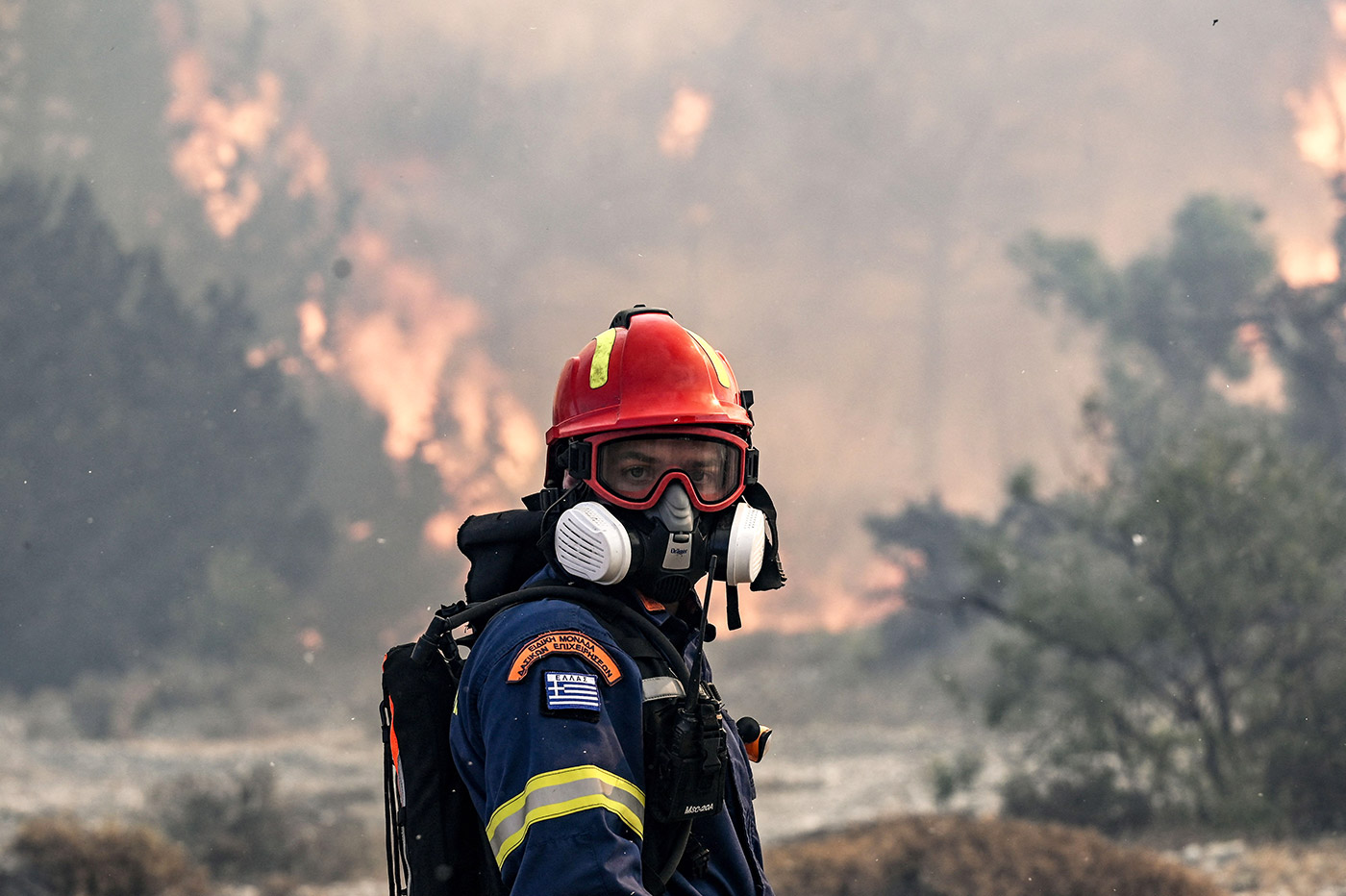
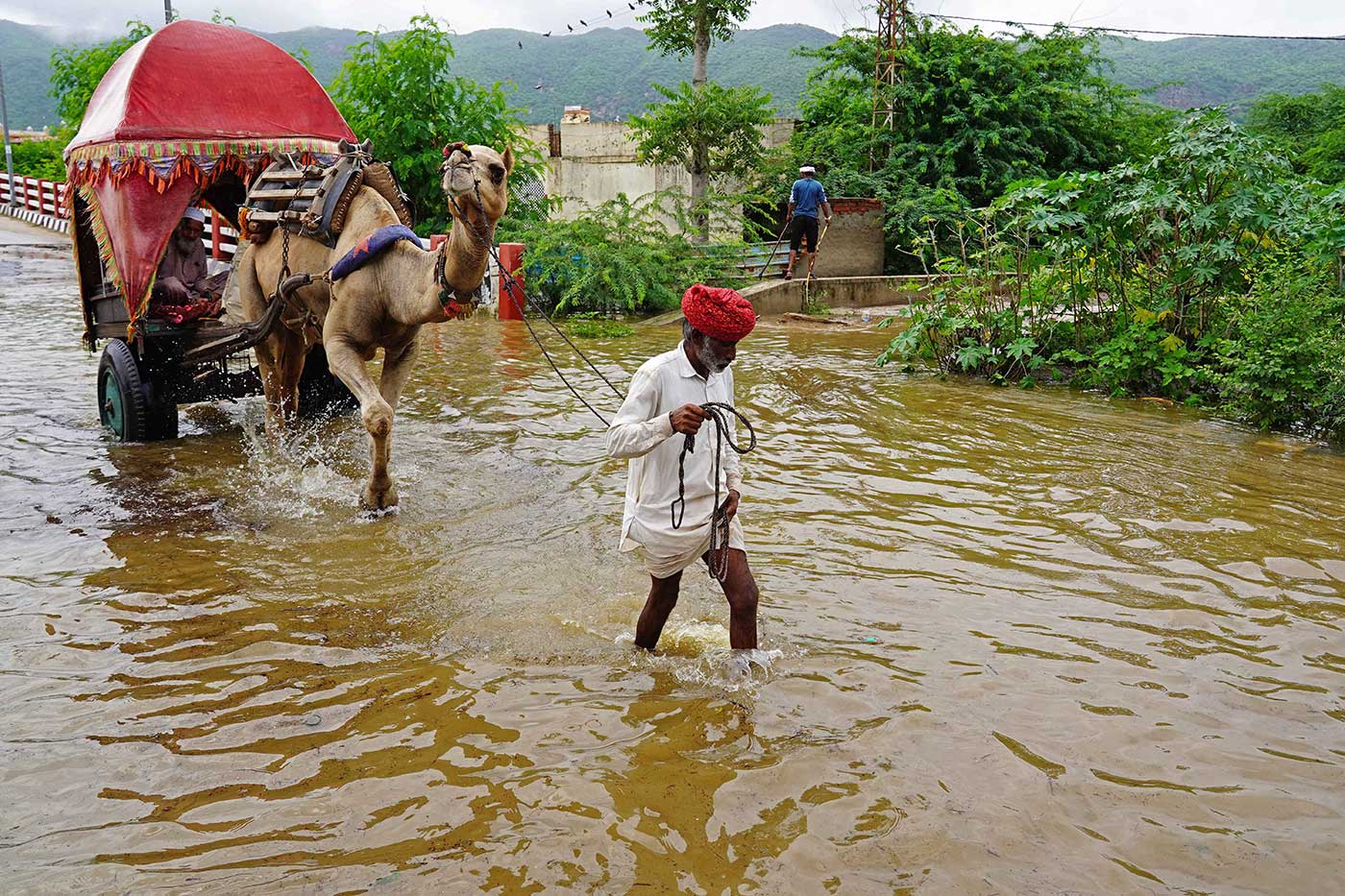
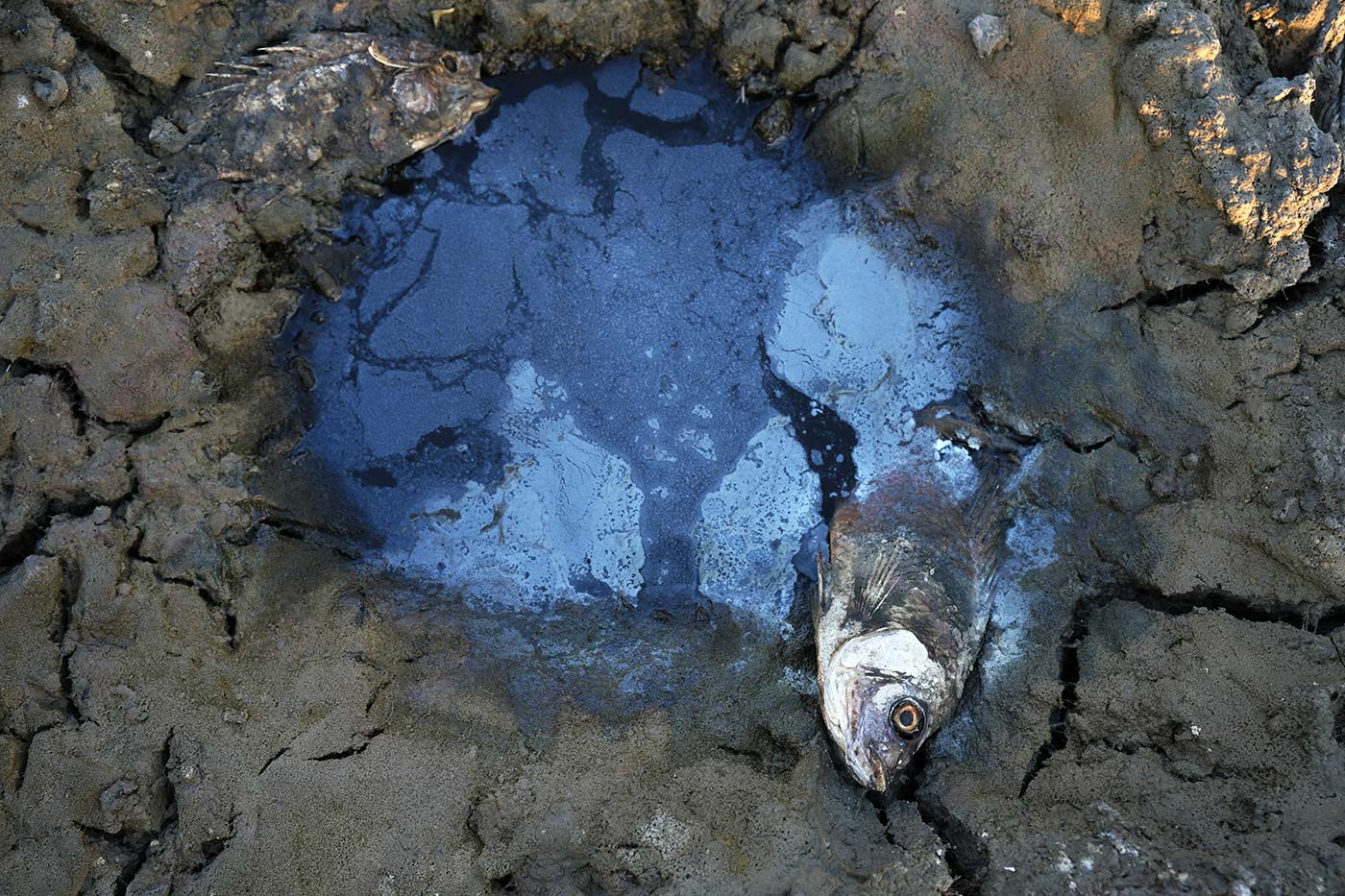
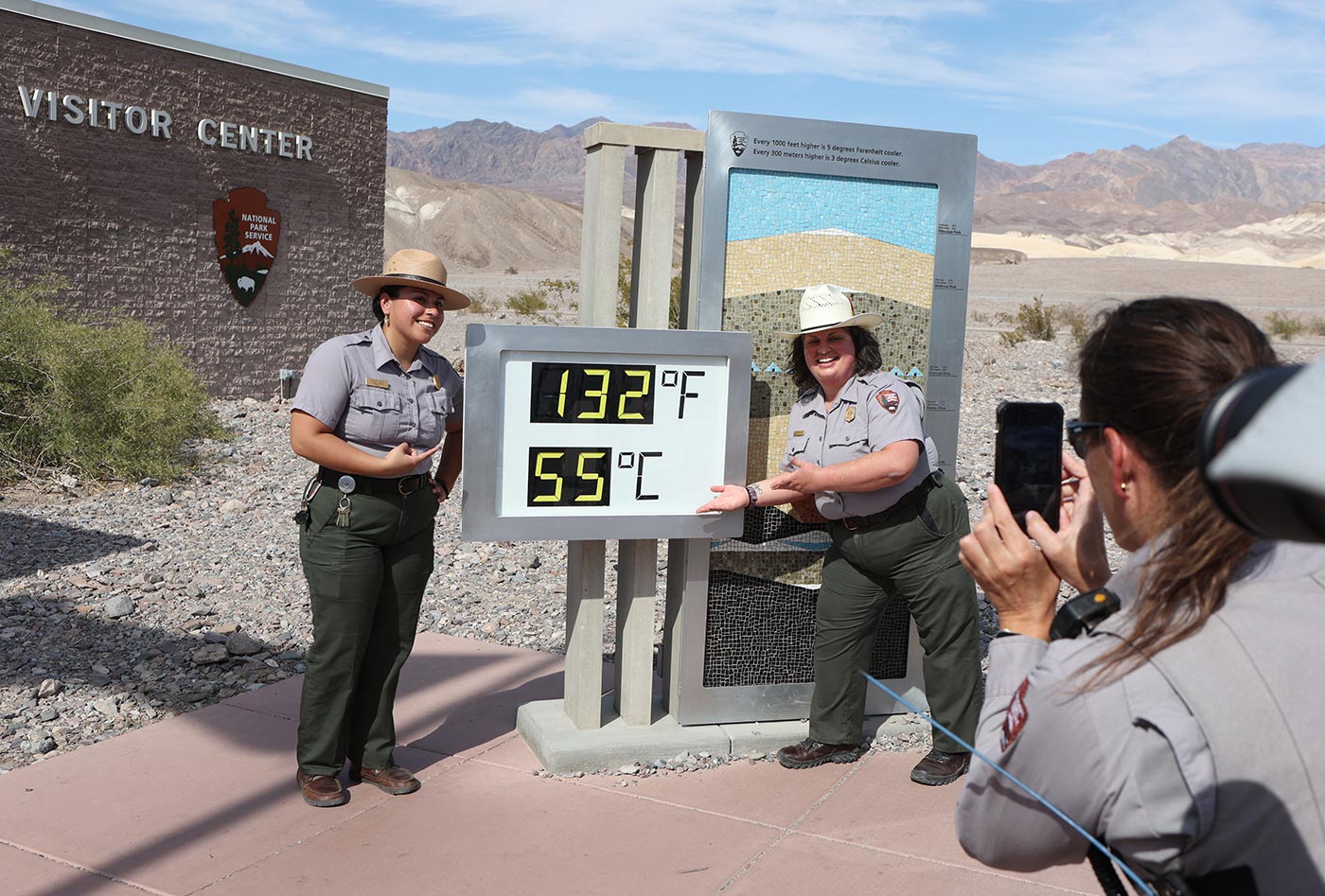
Canada is used to wildfires. But this year is different.
Four times as much land has burned than any other season since 1990 - 20 million acres have been scorched, with smoke spreading across large parts of the US at the start of July. The emissions from the fires could dwarf those from fossil fuels emitted by the country this year.
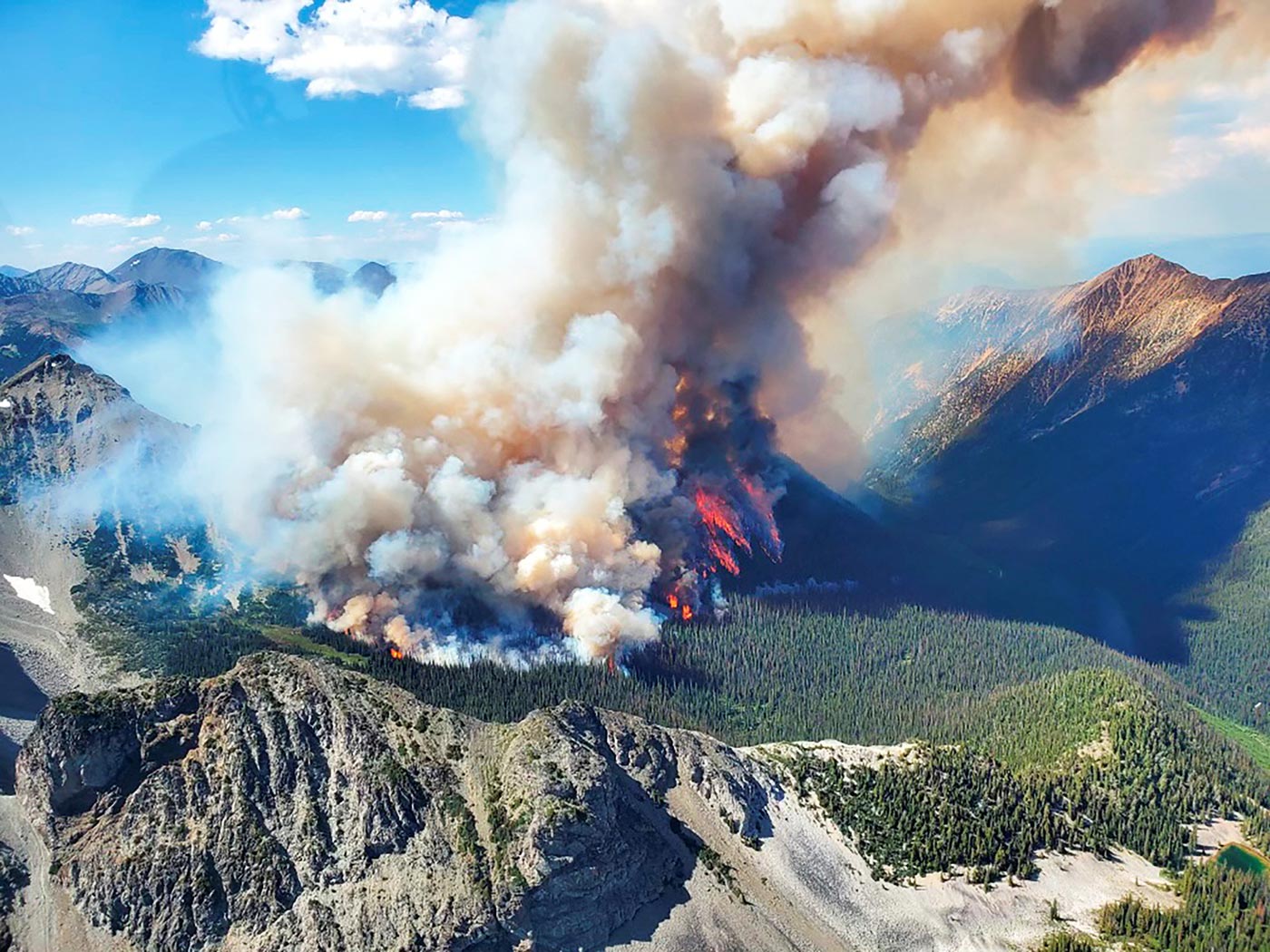
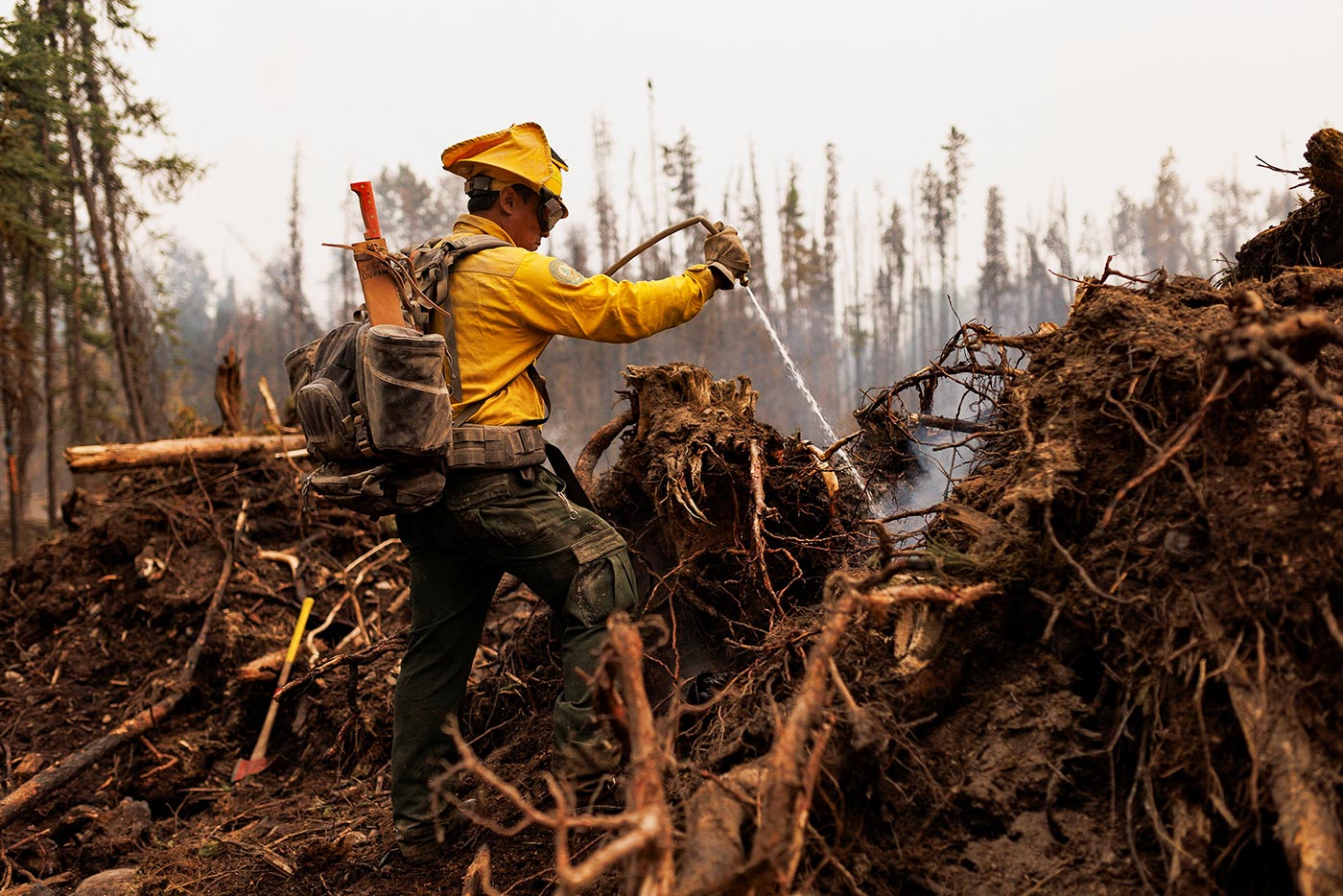
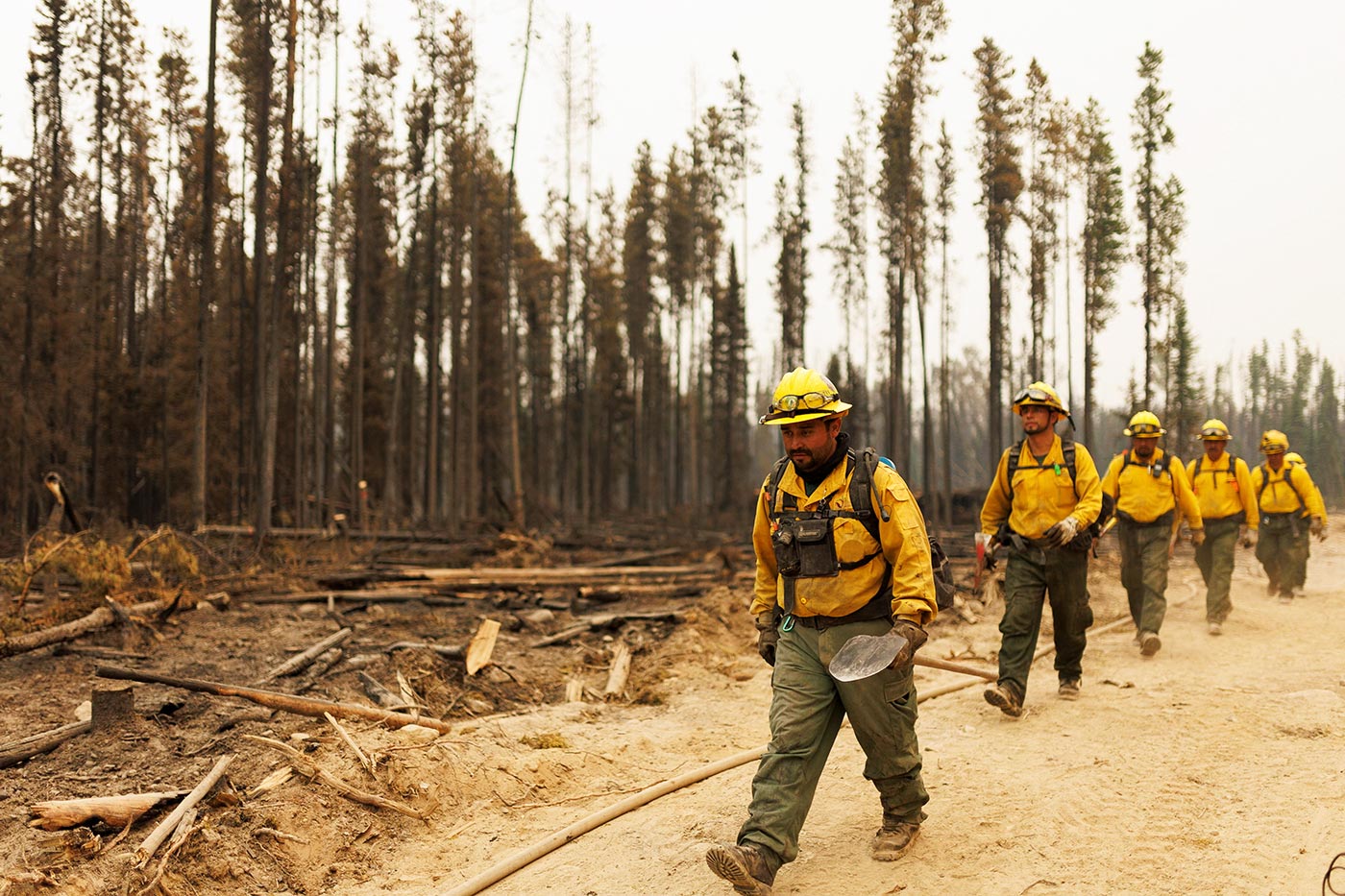
Parts of the US itself are so hot that doctors are treating patients for burn injuries after falling on pavements. More than 5,000 heat records have been broken or tied in the US in recent weeks, according to the National Oceanic and Atmospheric Association.
Phoenix, Arizona has had more than 25 days in a row of temperatures above 43C (110F), shattering the past record of 18 days, while fierce storms caused flooding in Vermont.
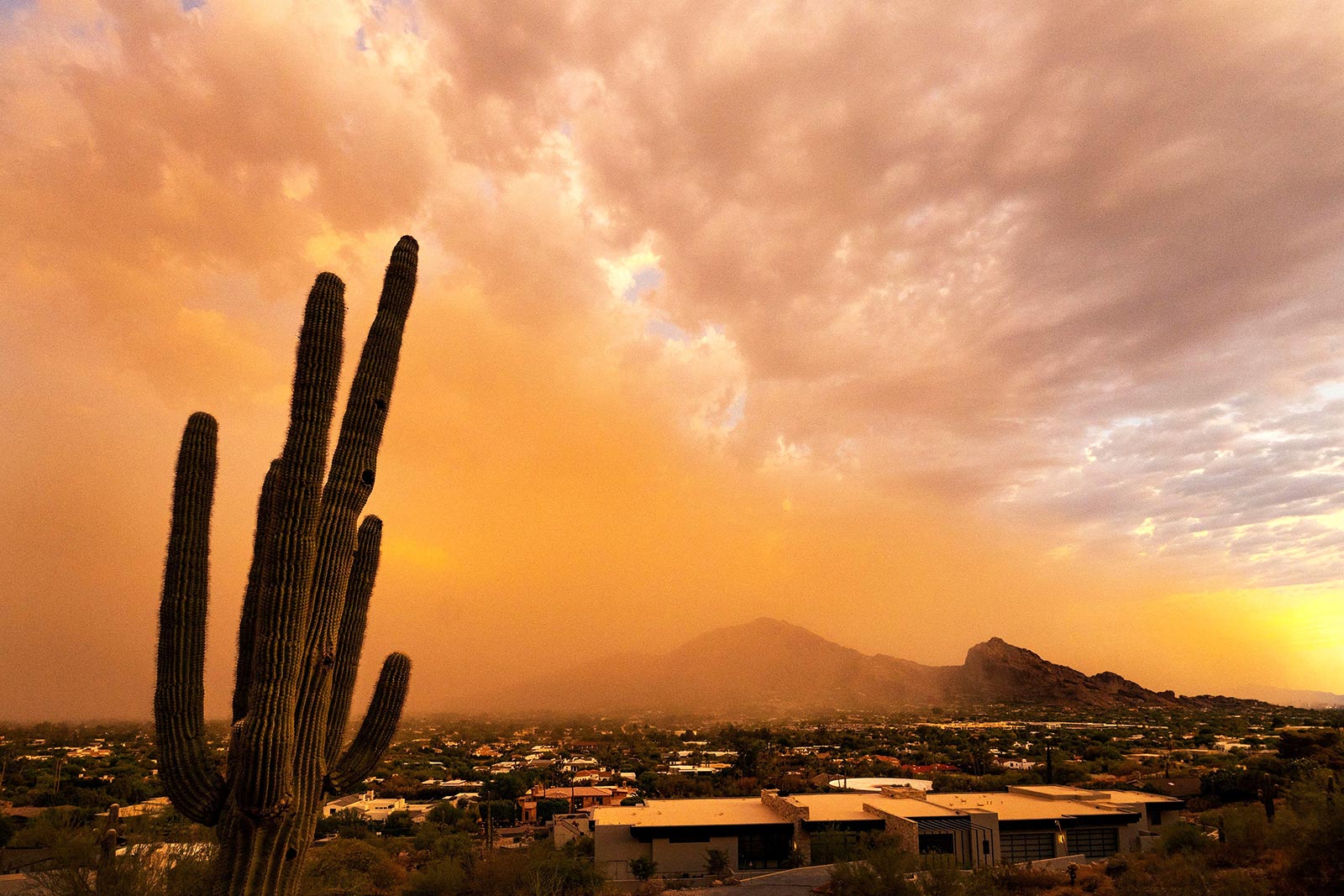
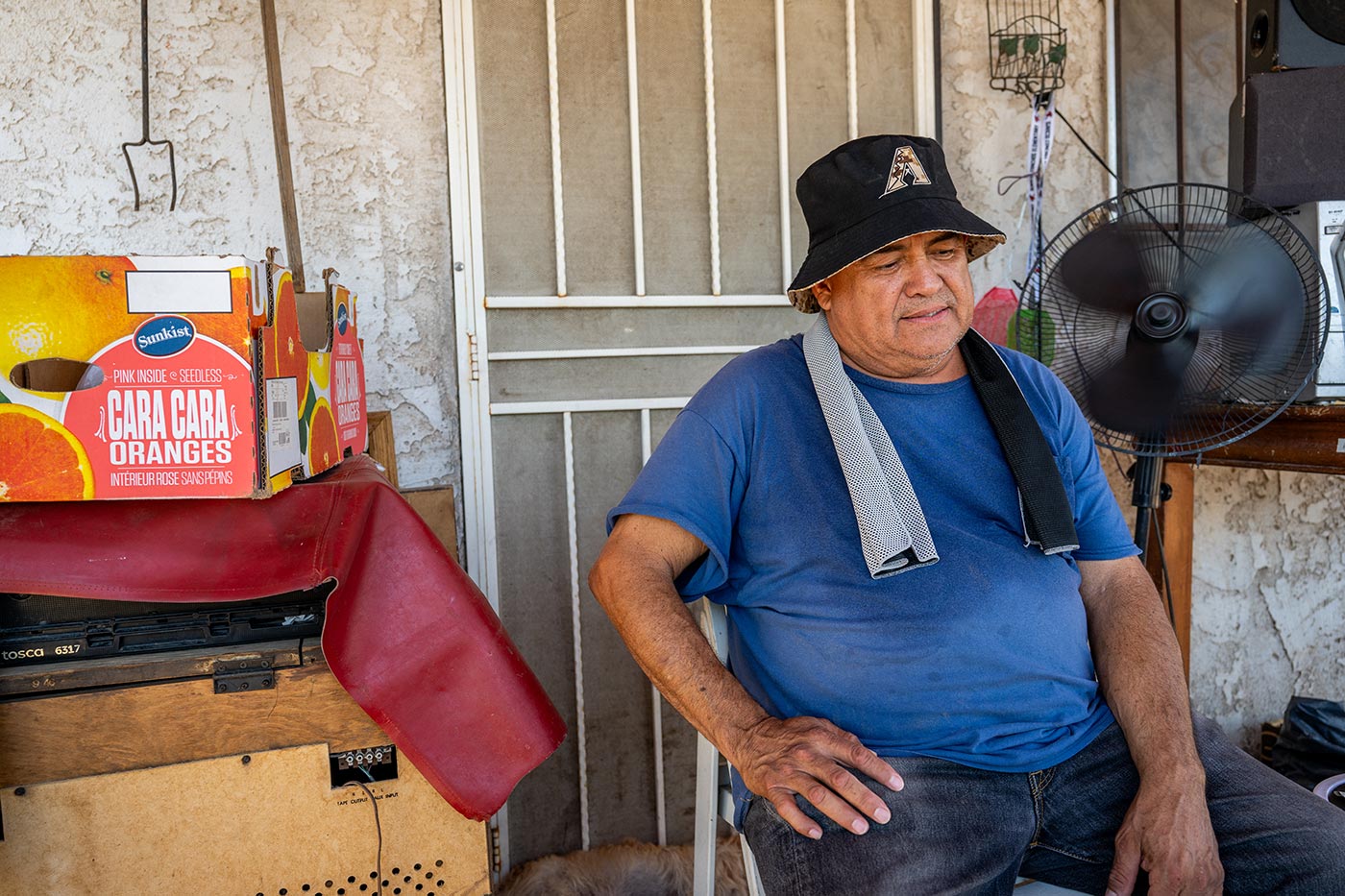
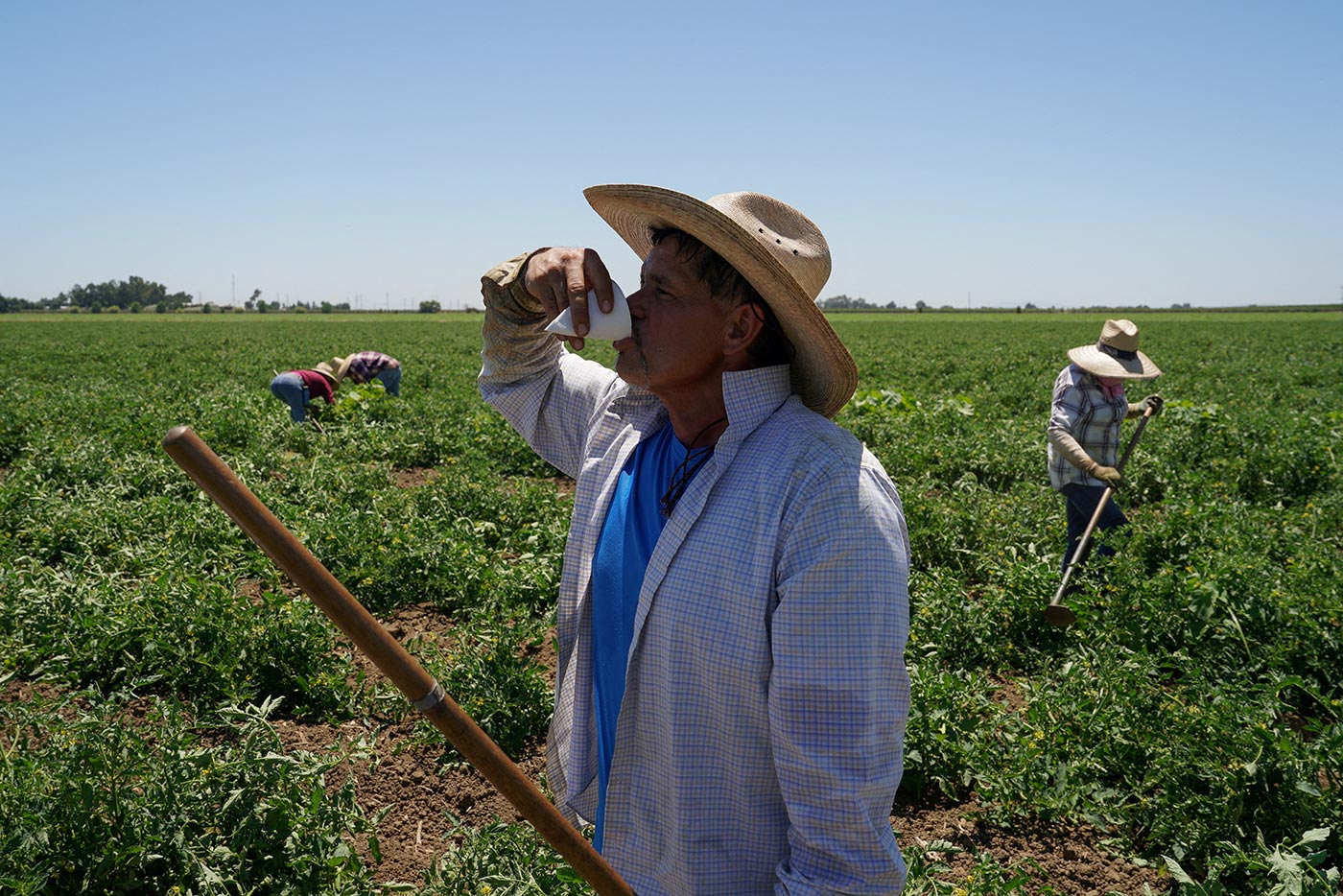
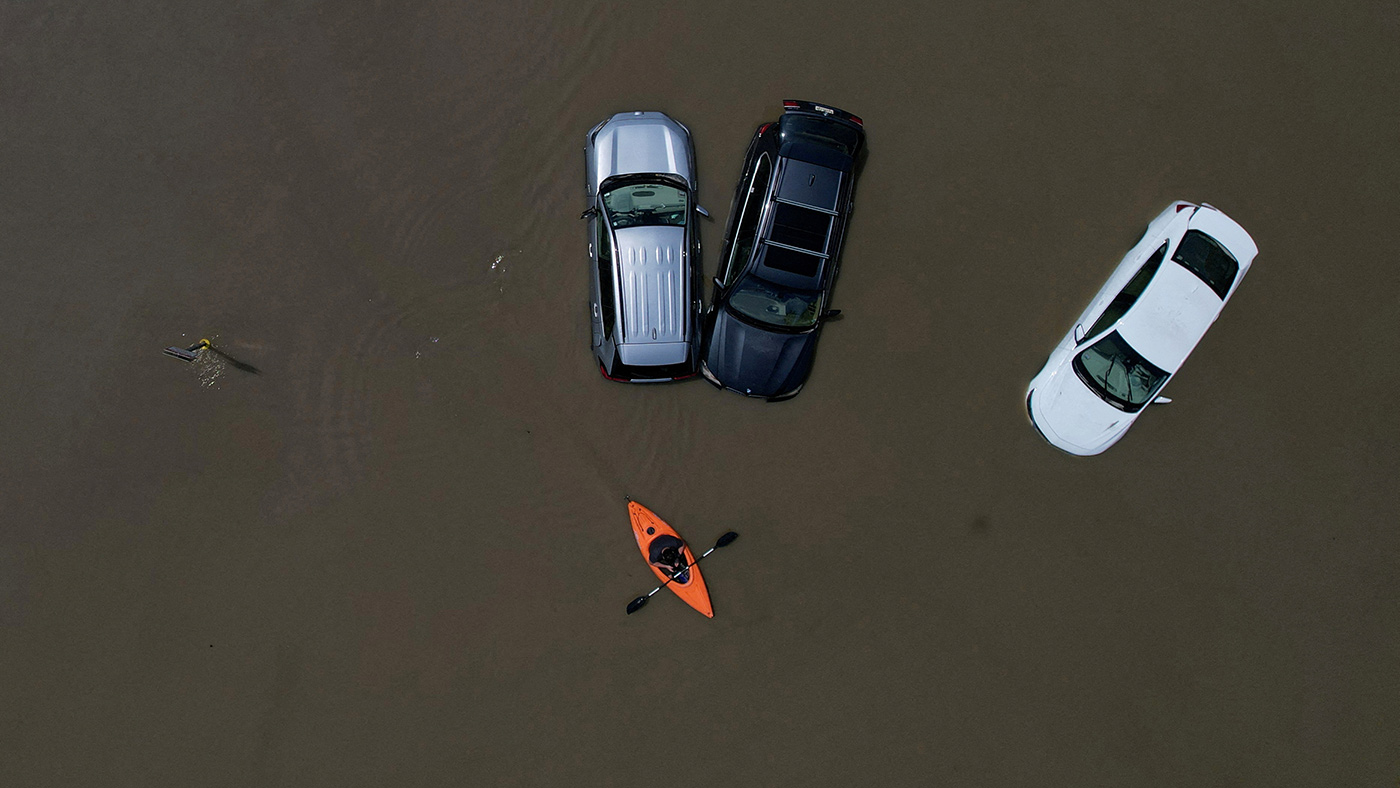
Further south, Uruguay, on the banks of the River Plate, is experiencing its worst recorded drought in 74 years after low rainfall and record high temperatures.
At the start of July, the main Paso Severino reservoir was down to just 1.7% capacity. Water supplies have been topped up with salty water from the estuary, forcing millions in the capital, Montevideo, to rely on bottled water for drinking.
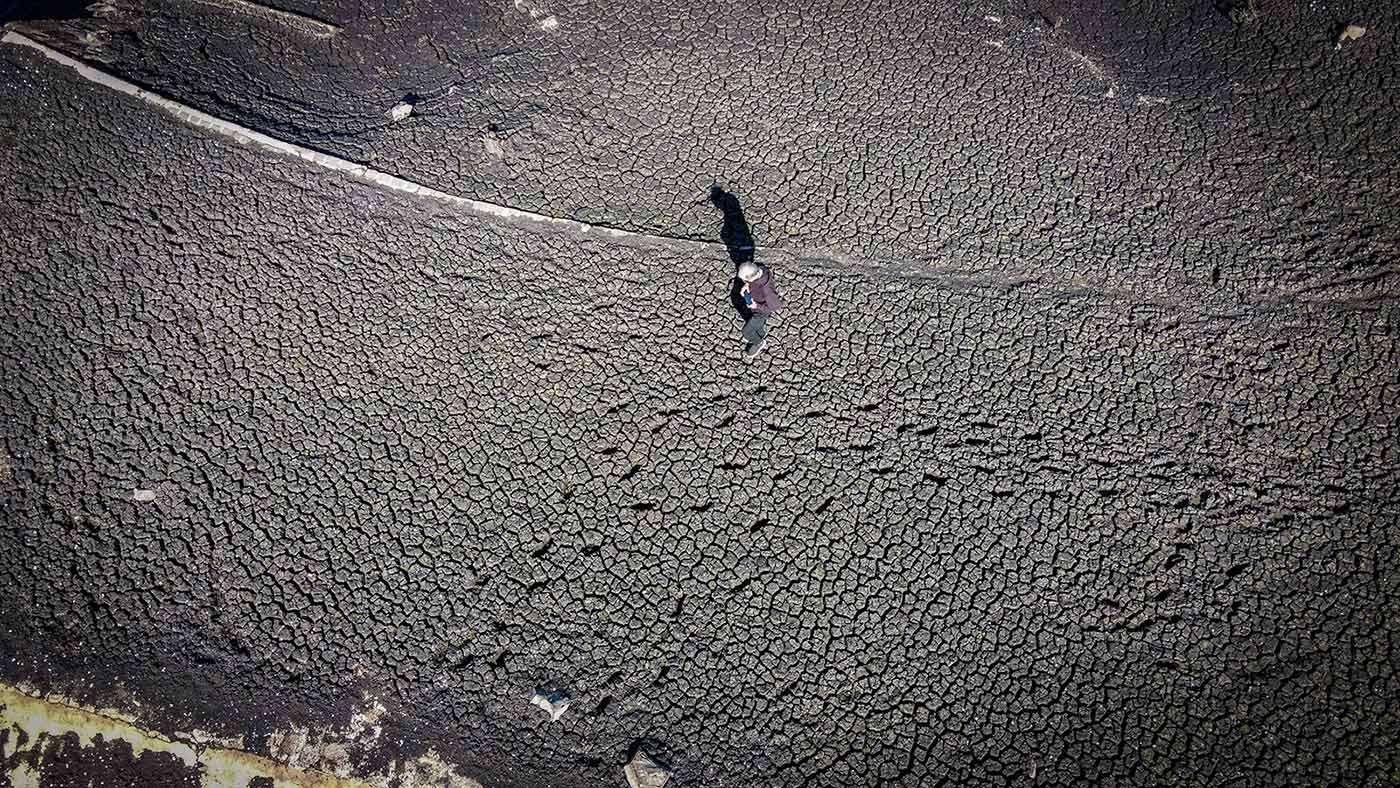
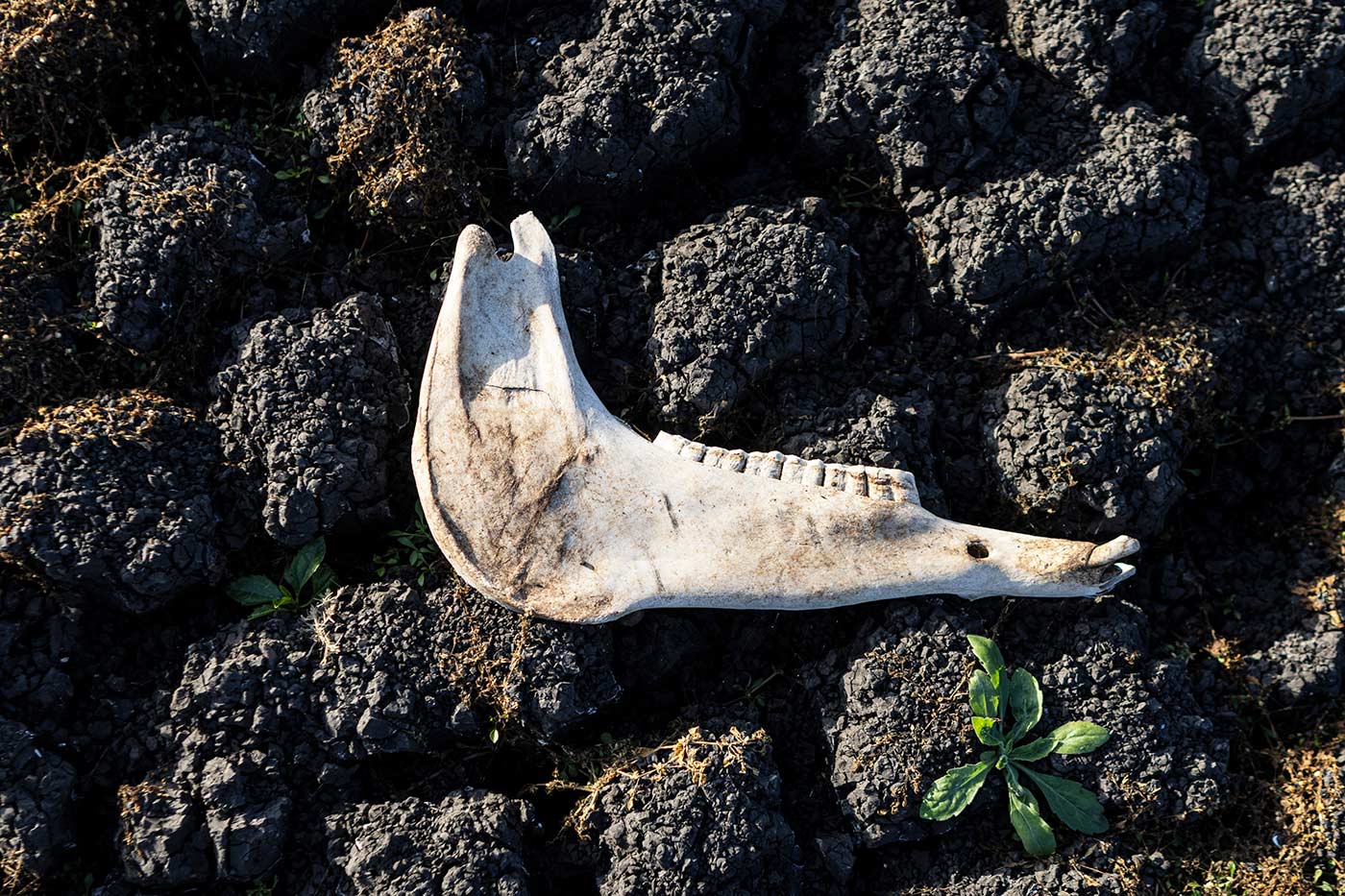
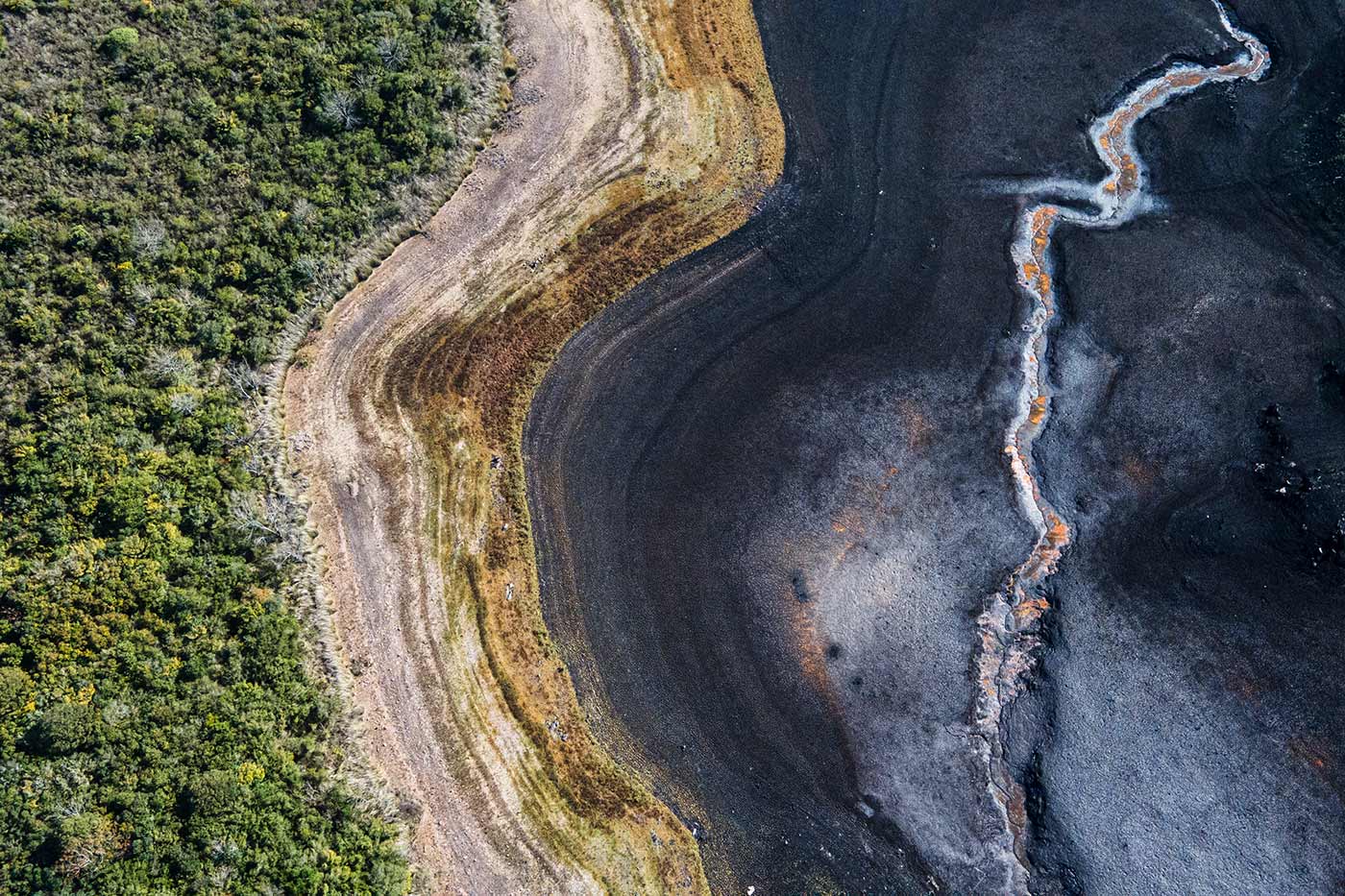

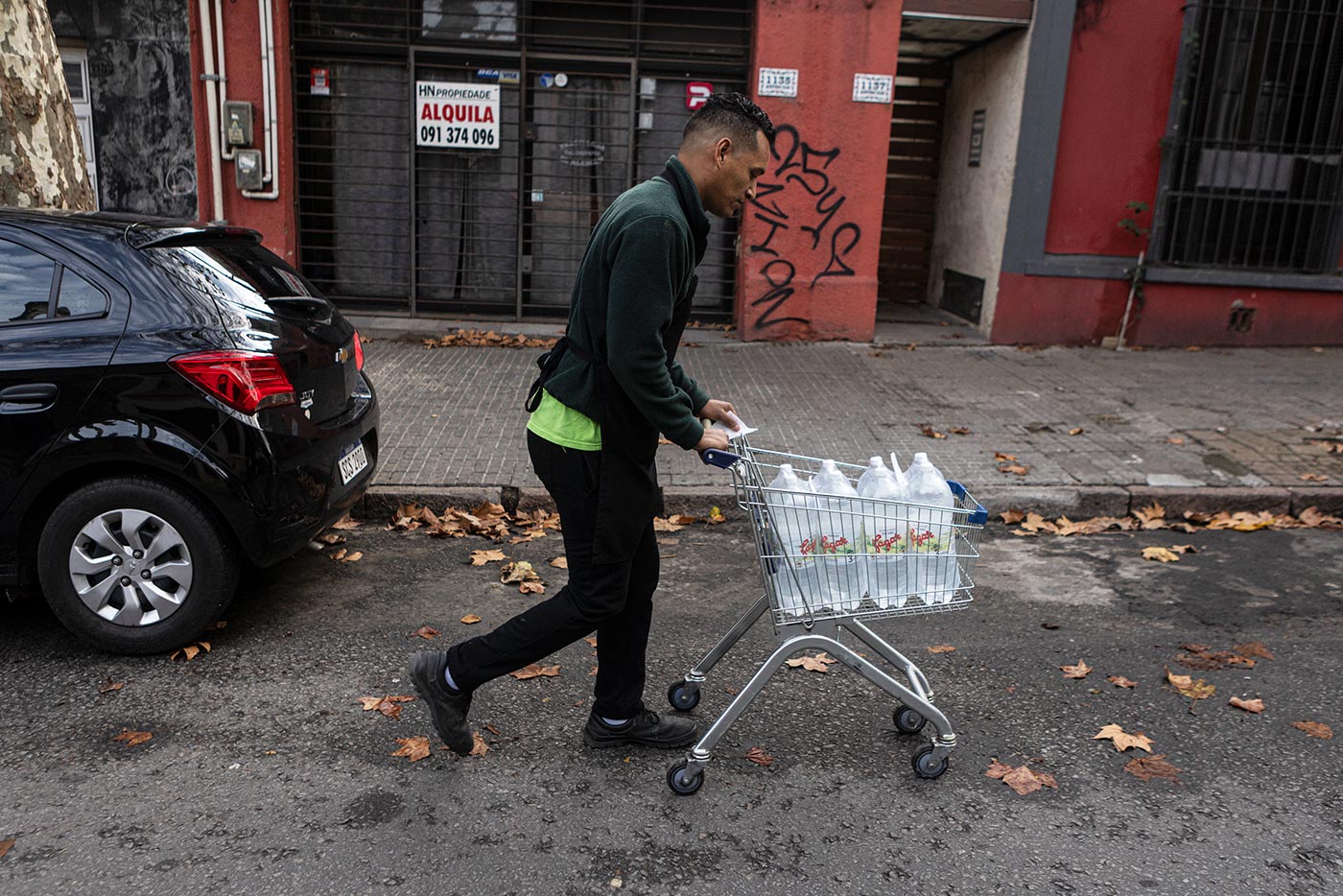
Asia experienced the opposite extreme with intense rain causing floods and landslides across several countries including India, Japan and China as the vast region experiences a powerful monsoon season.
In northern India, authorities say about 100 people died due to landslides, flash floods and property collapses in the first two weeks of July.
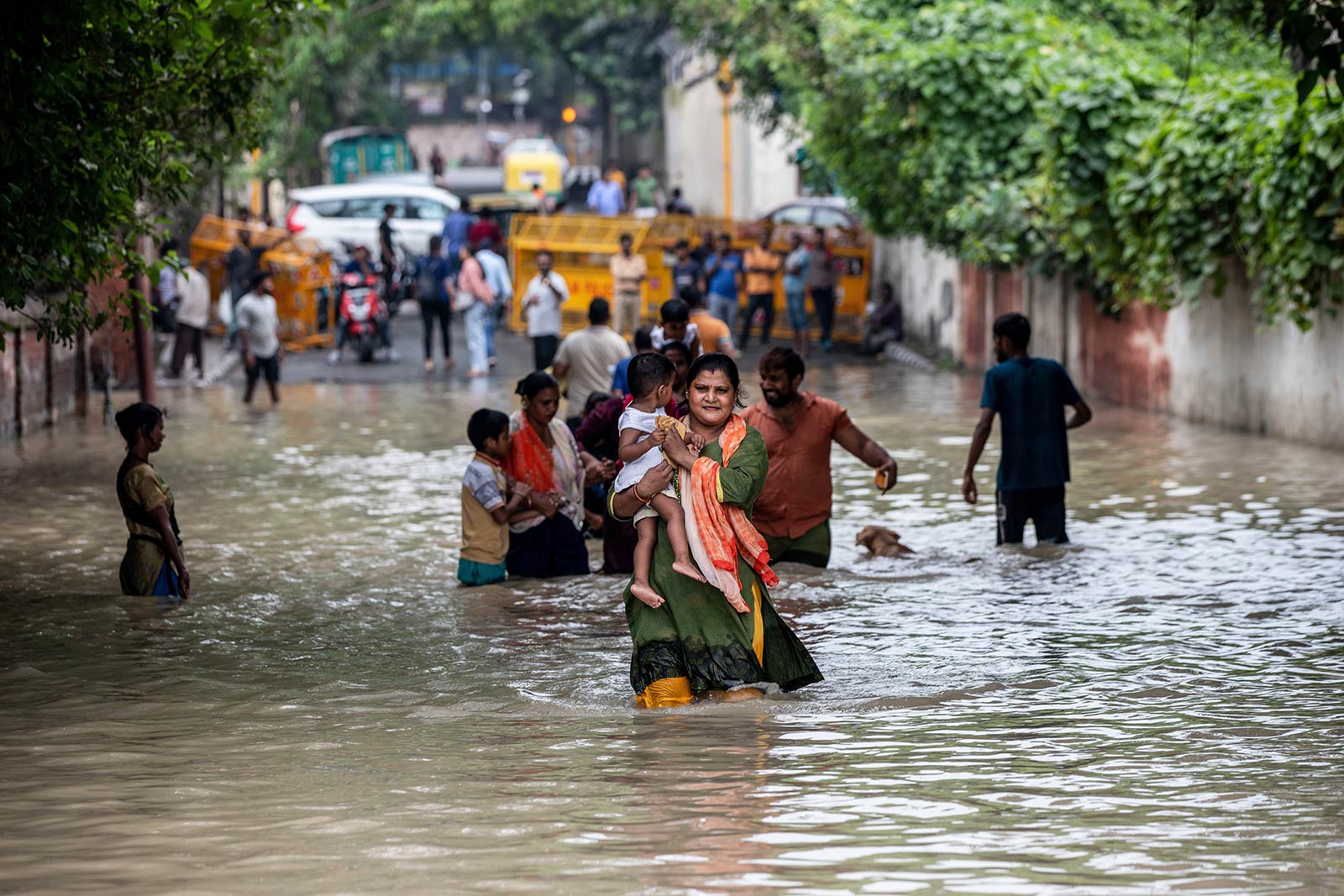
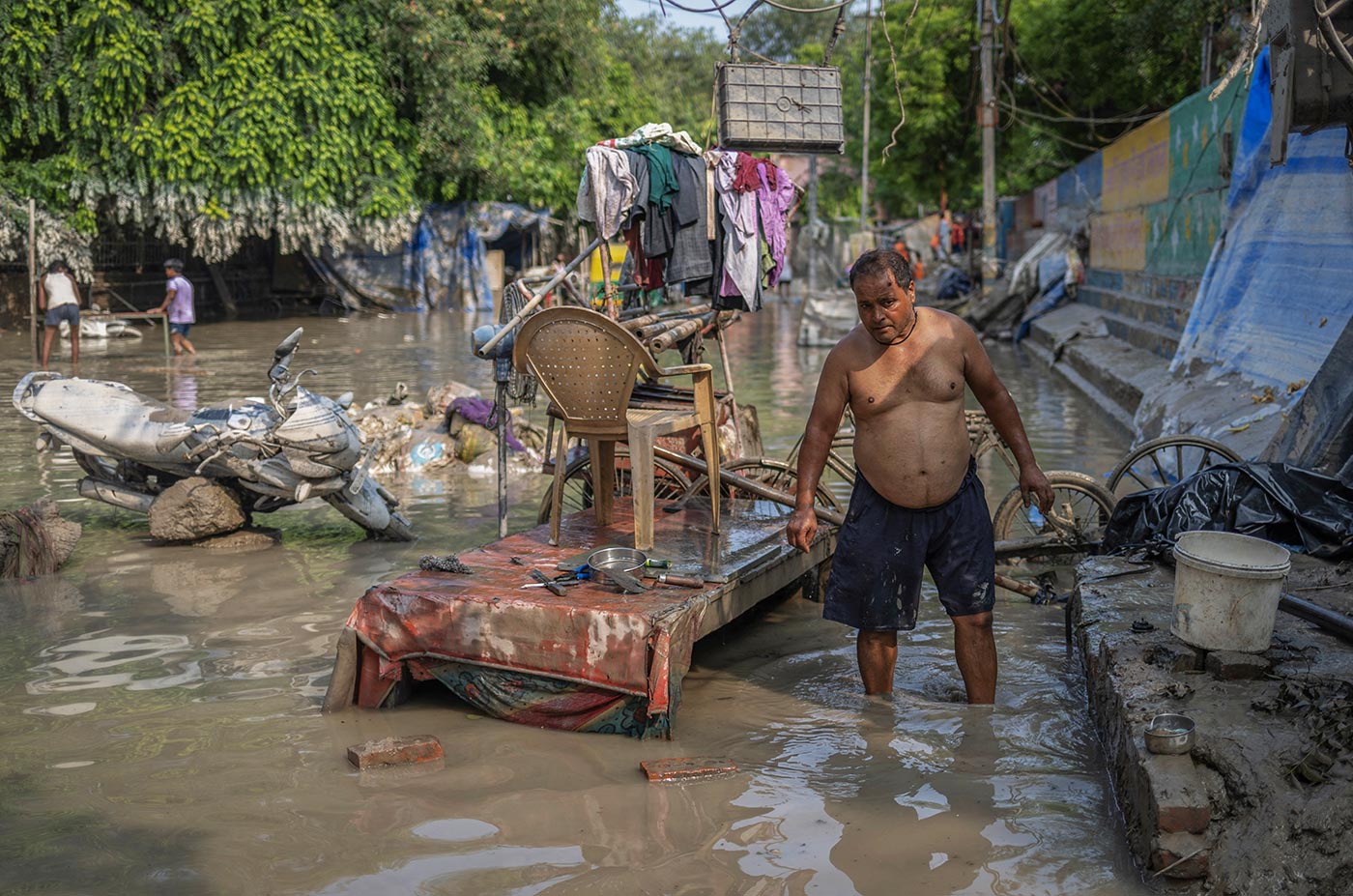
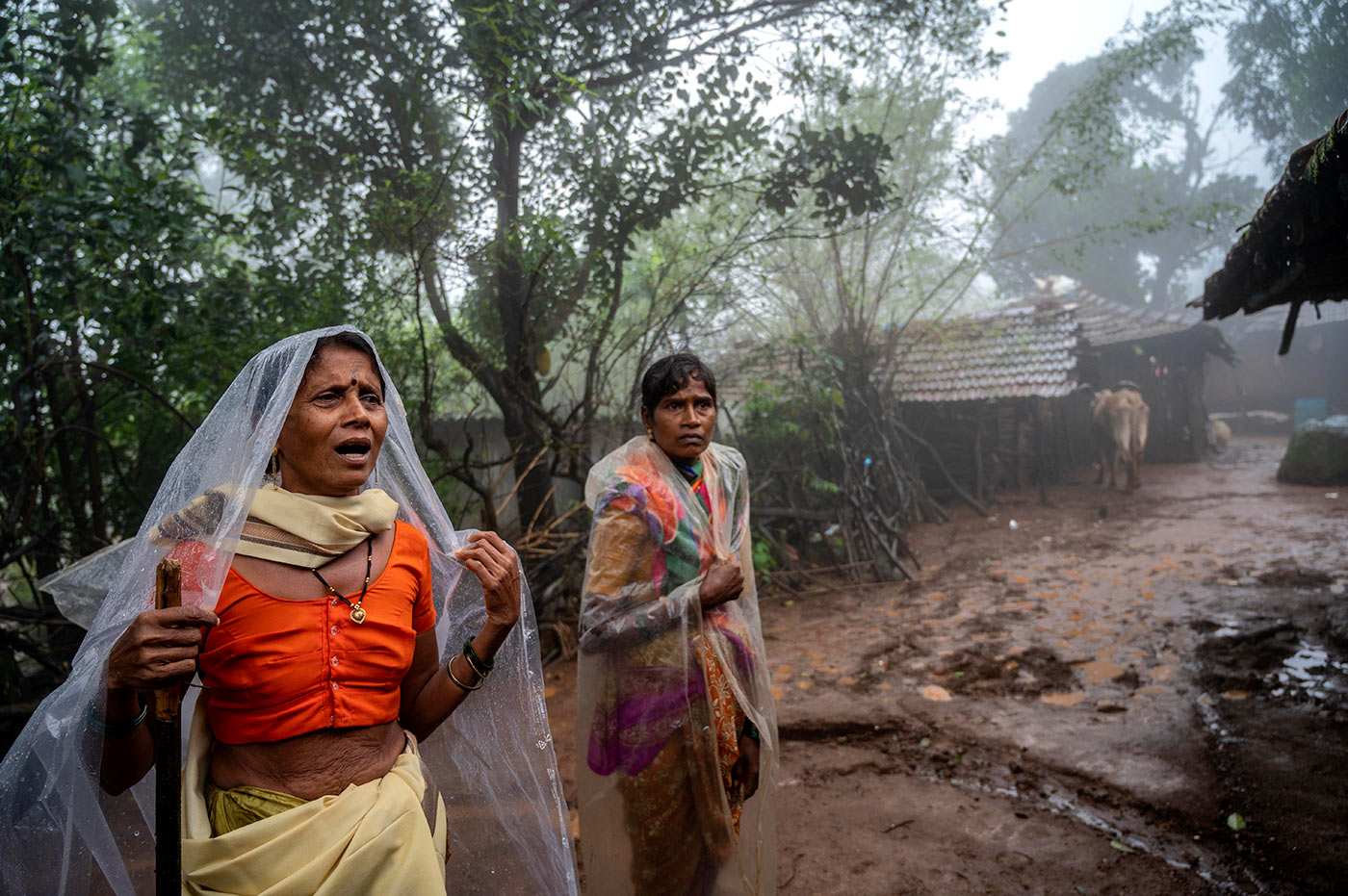
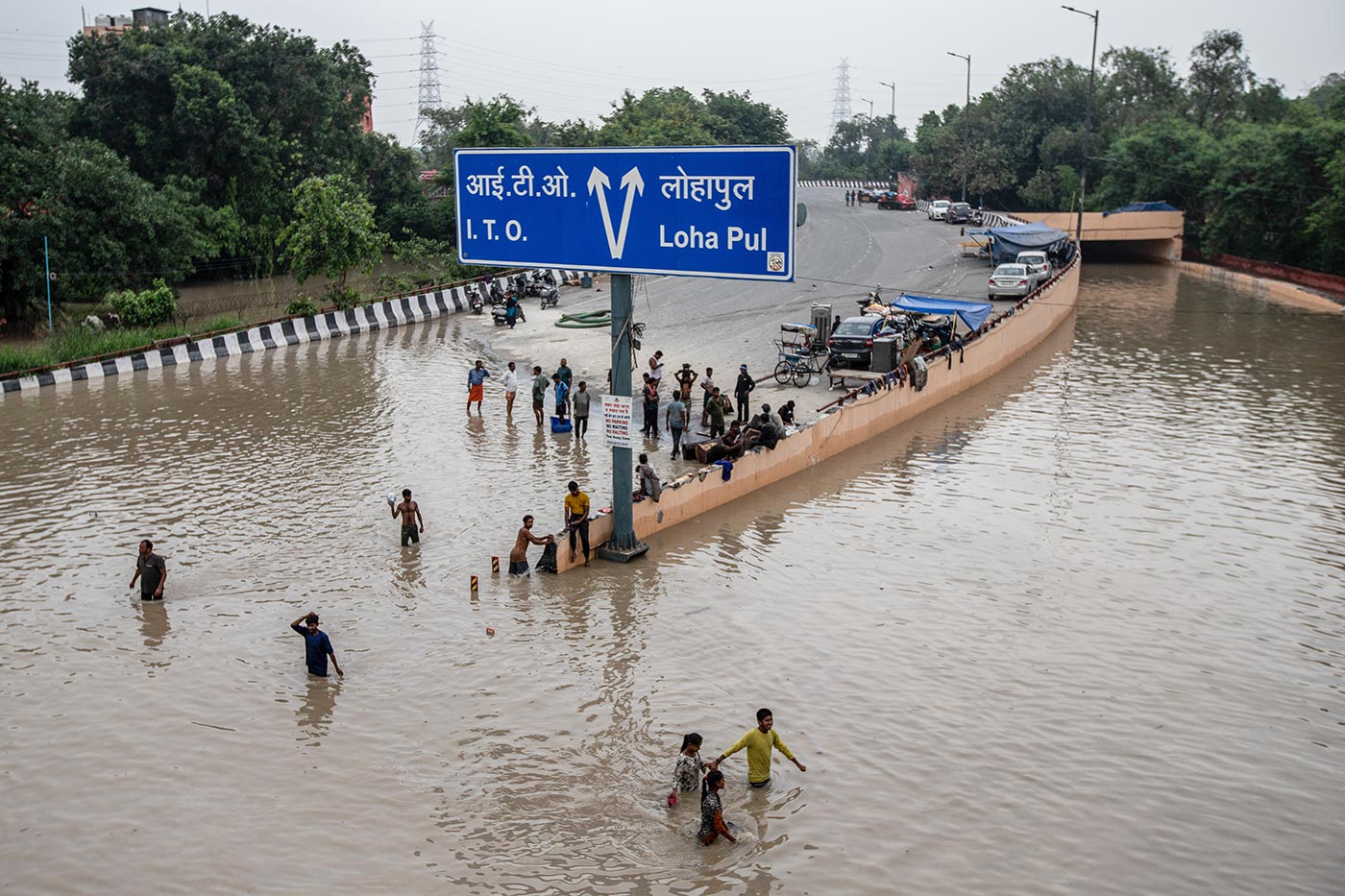
Japan reported record-breaking floods on the island of Kyushu. "It's raining like never before," a spokesman for Japan's meteorological agency said.
While many factors contribute to flooding, scientists say climate change due to global warming has increased the likelihood of heavy rain across the world, because a warmer atmosphere holds more water.
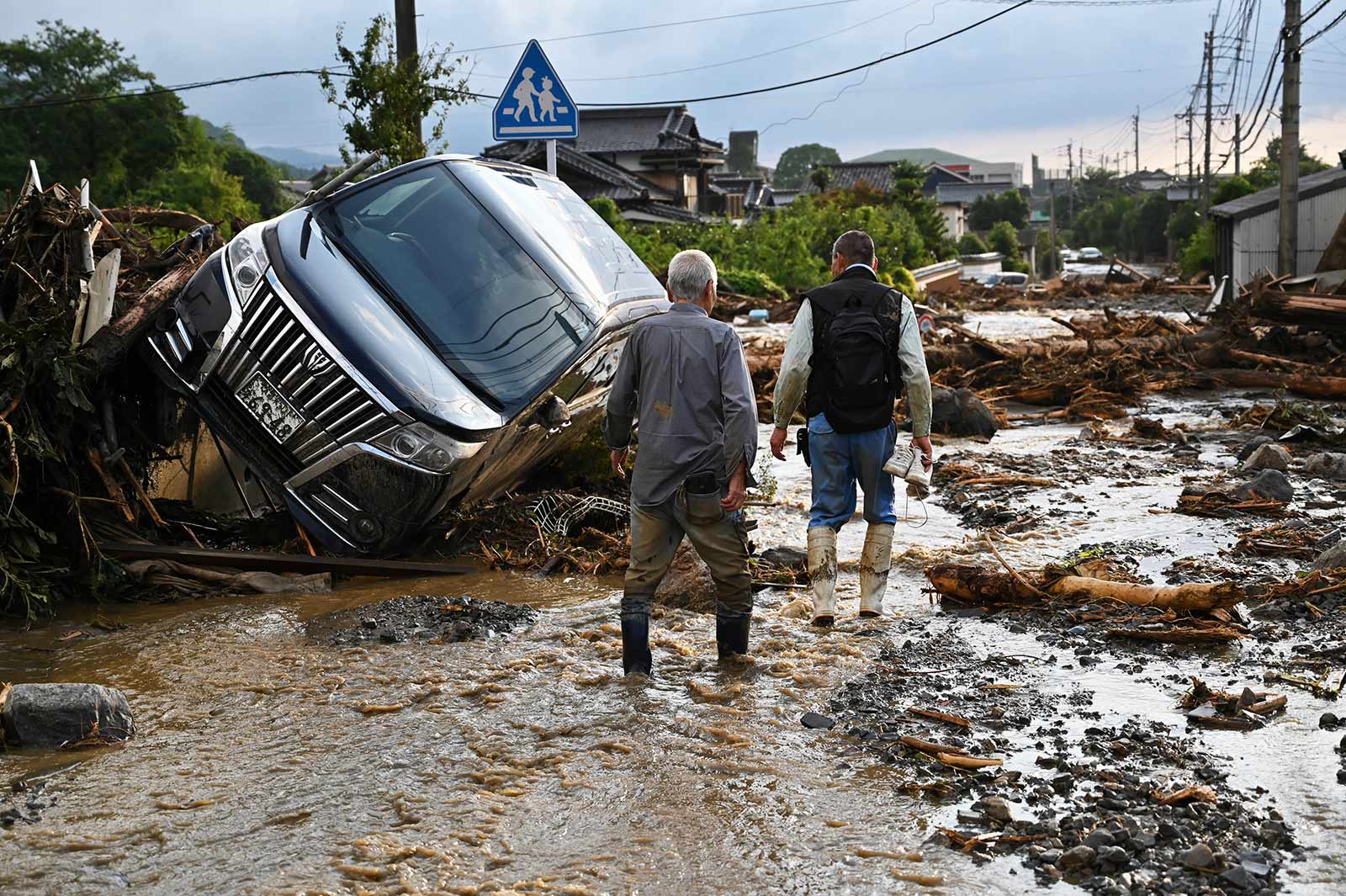
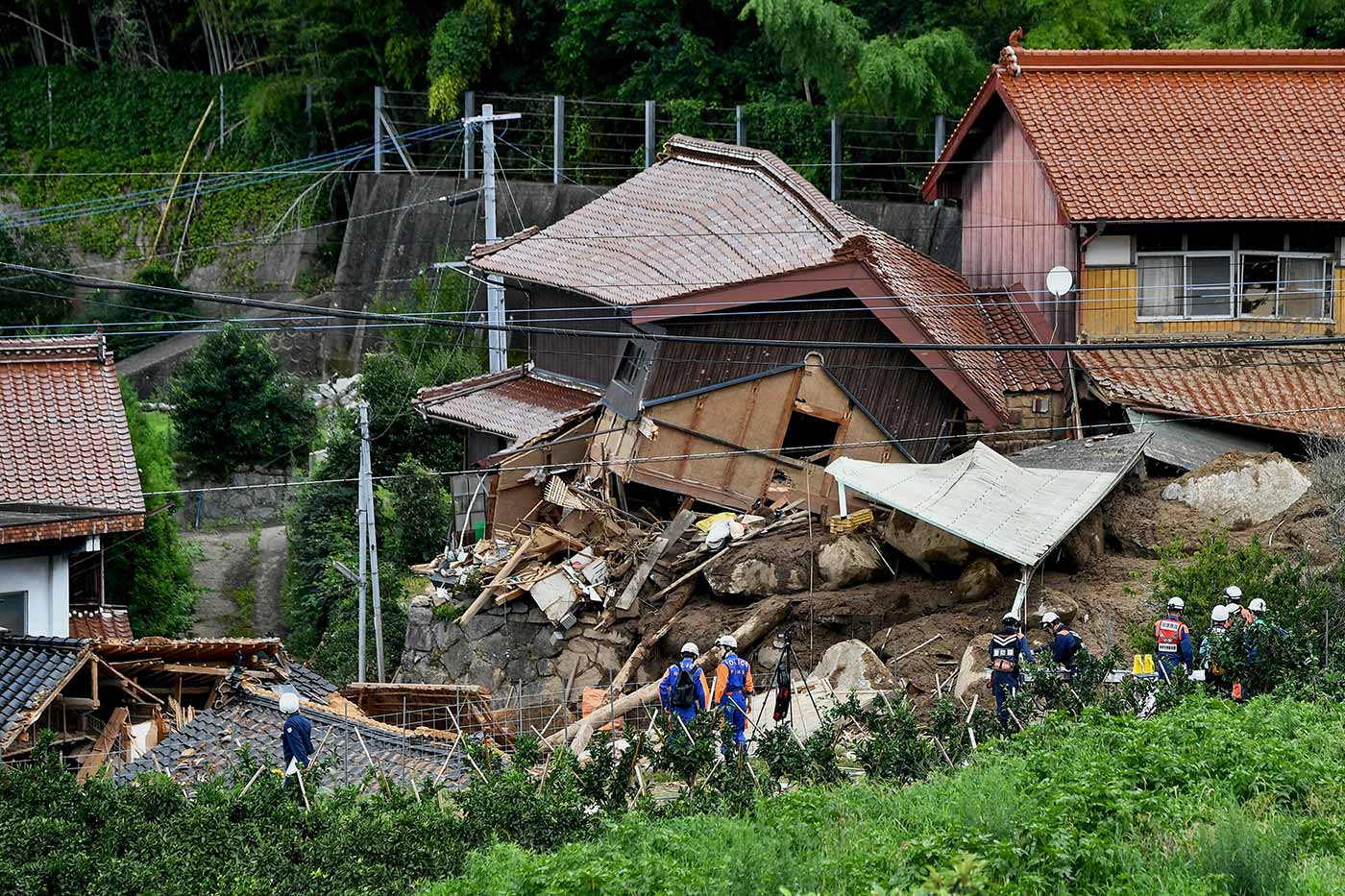
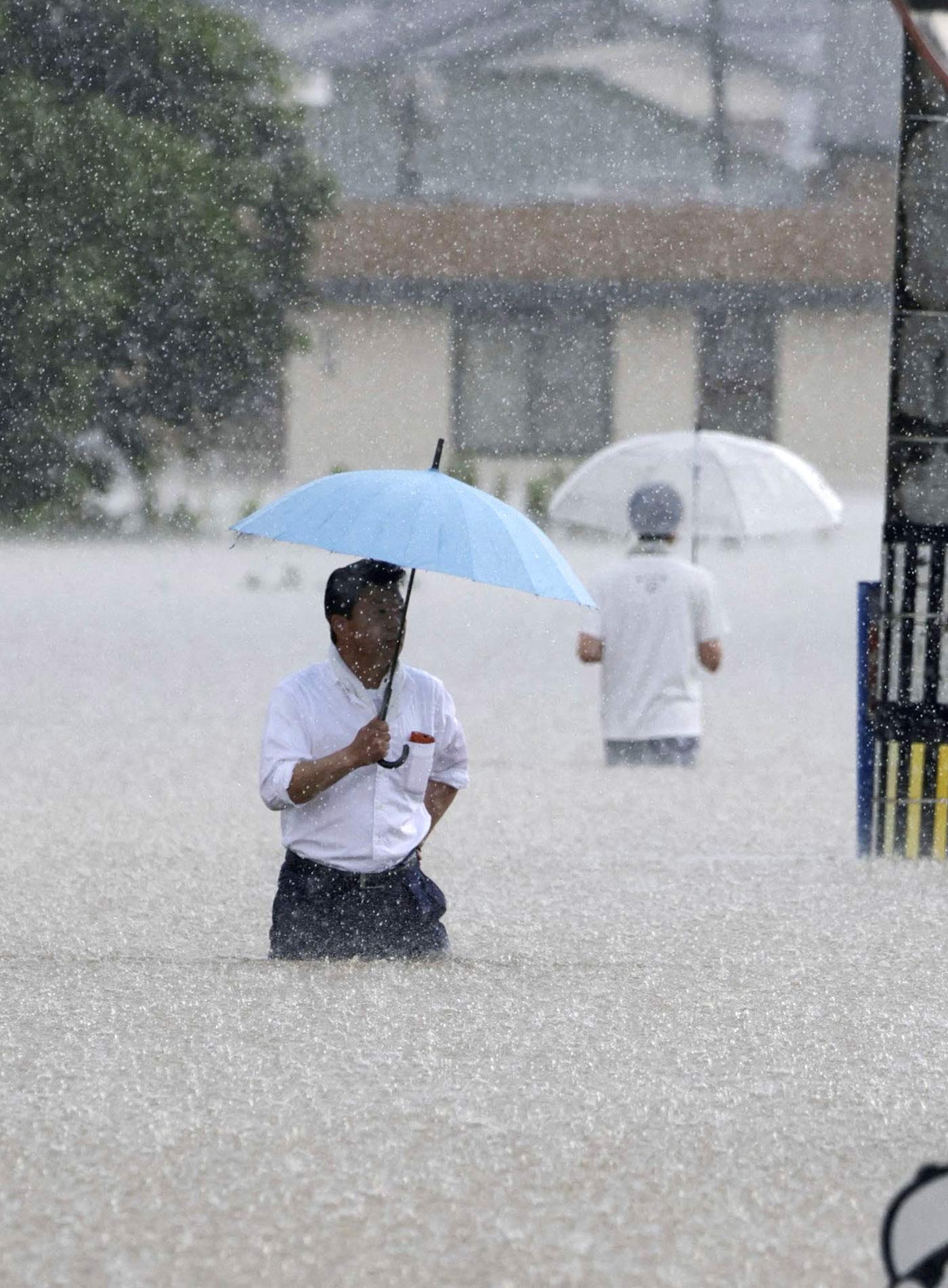
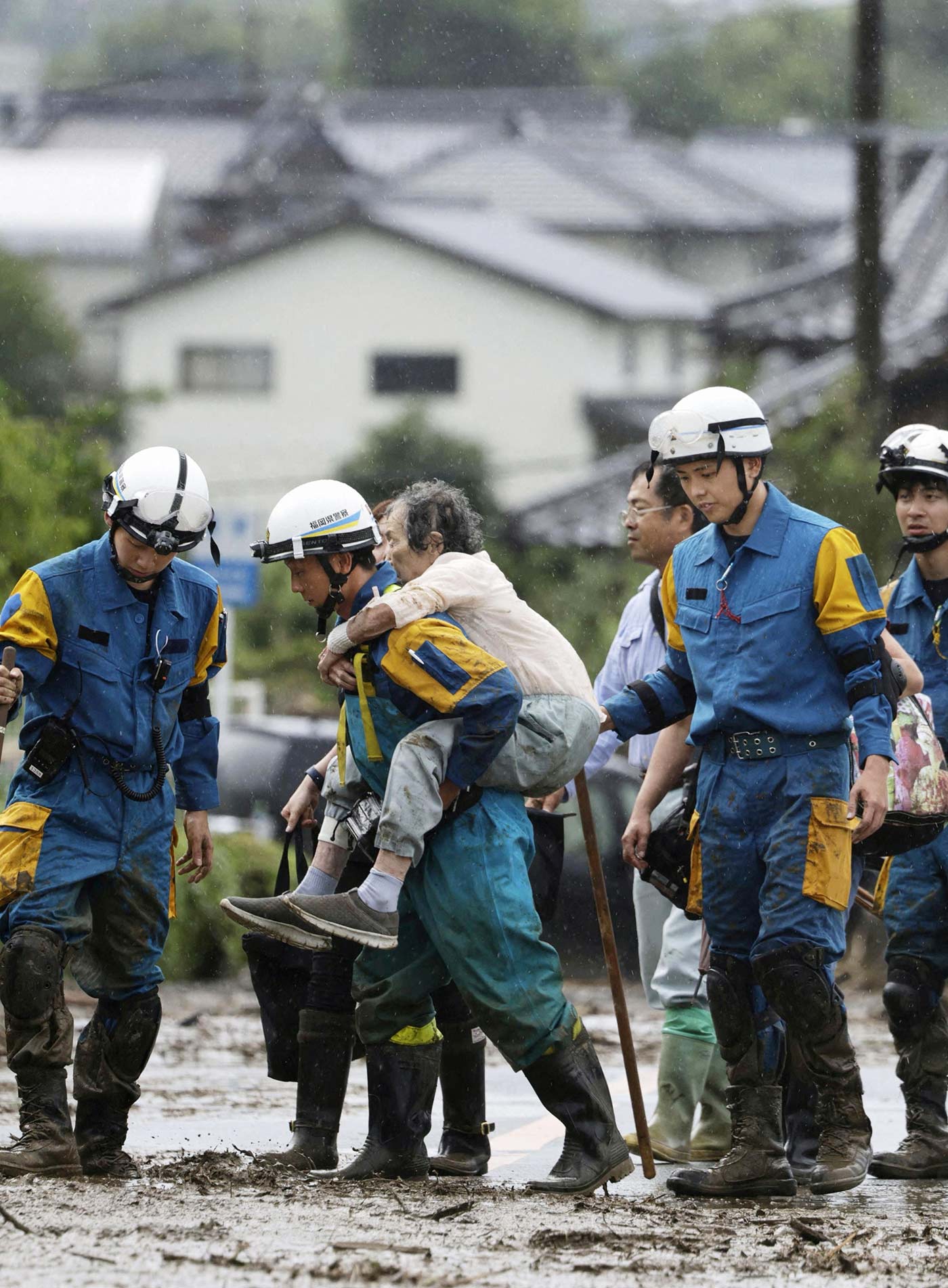
Unusually heavy rains led to the deaths of several people and damaged infrastructure across China at the start of the month, with soldiers and armed police drafted in to help.
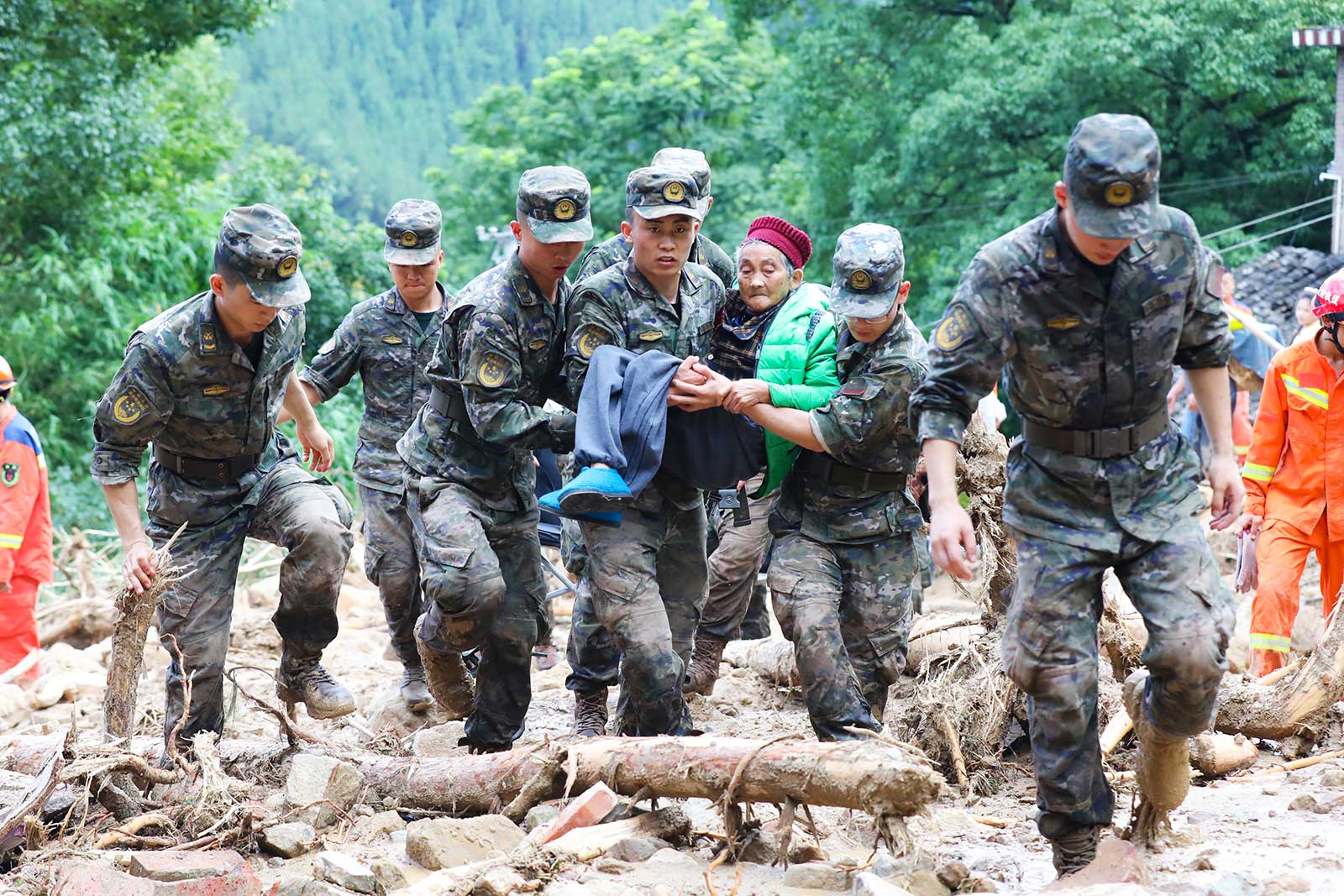
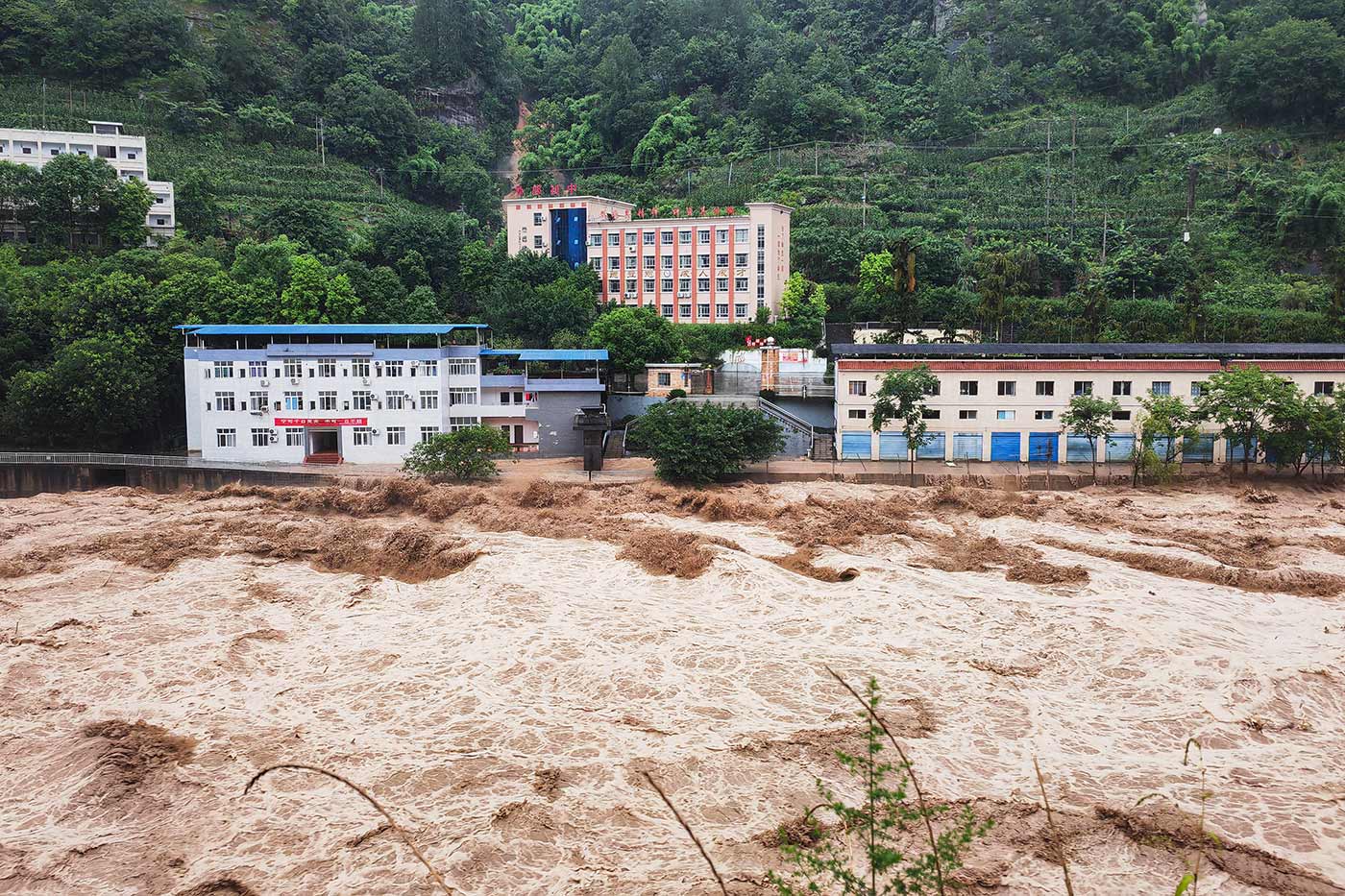
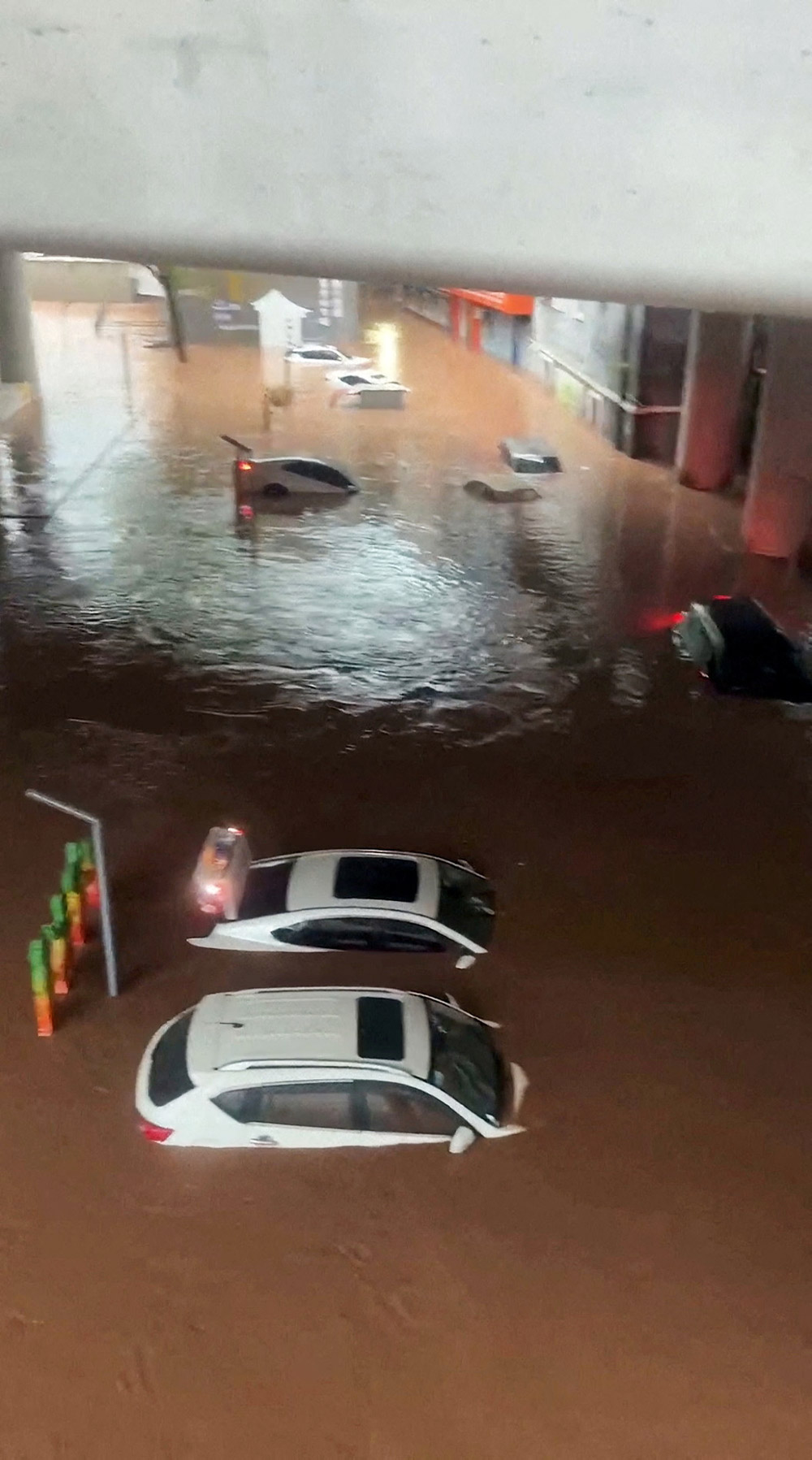
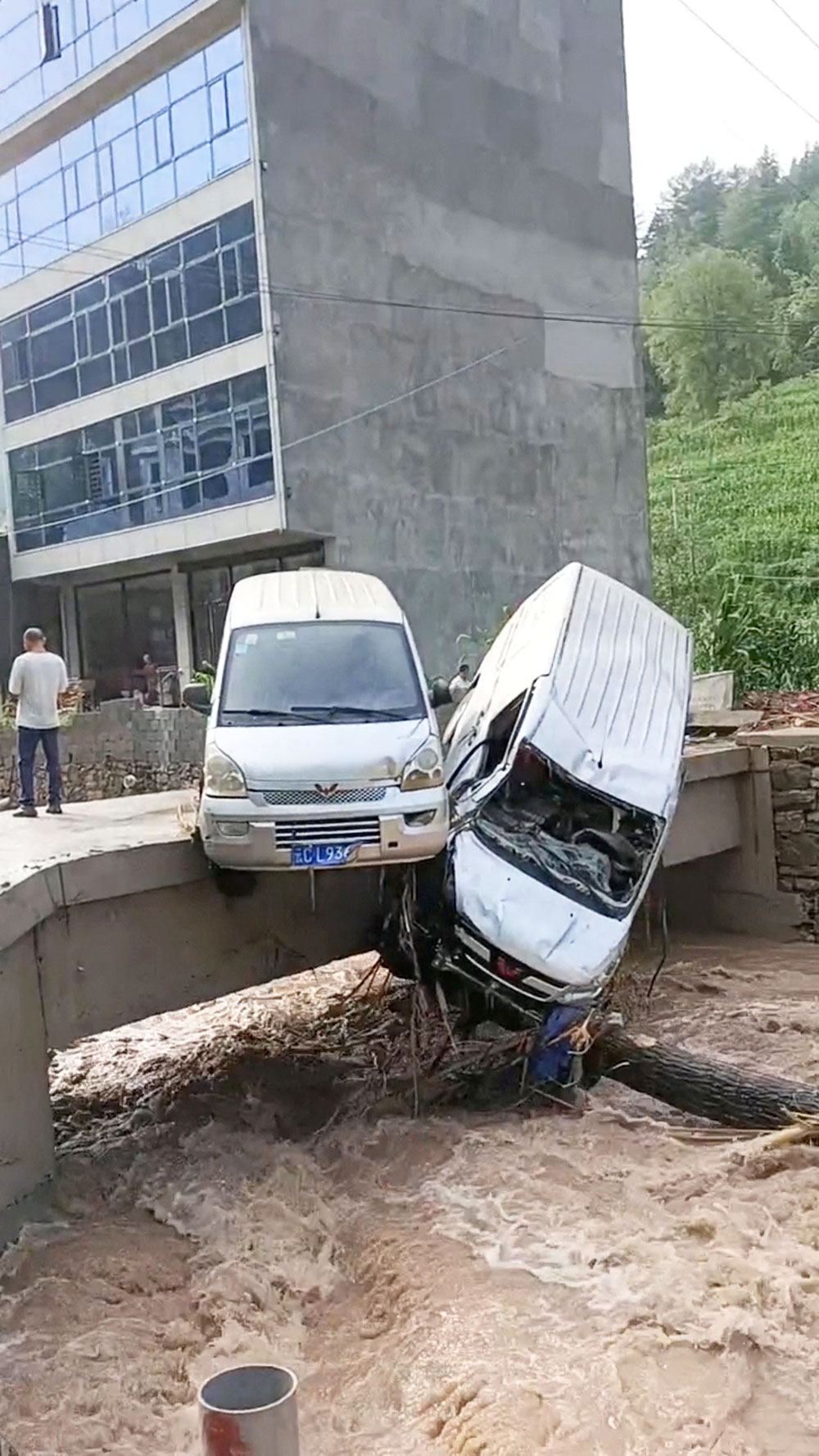
But umbrellas were soon being used to shelter from the Sun rather than the rain as unusually high temperatures hit the country, including in the capital Beijing.
China provisionally broke its highest temperature record on 16 July when it recorded 52.2C (126F) in the western Xinjiang region.
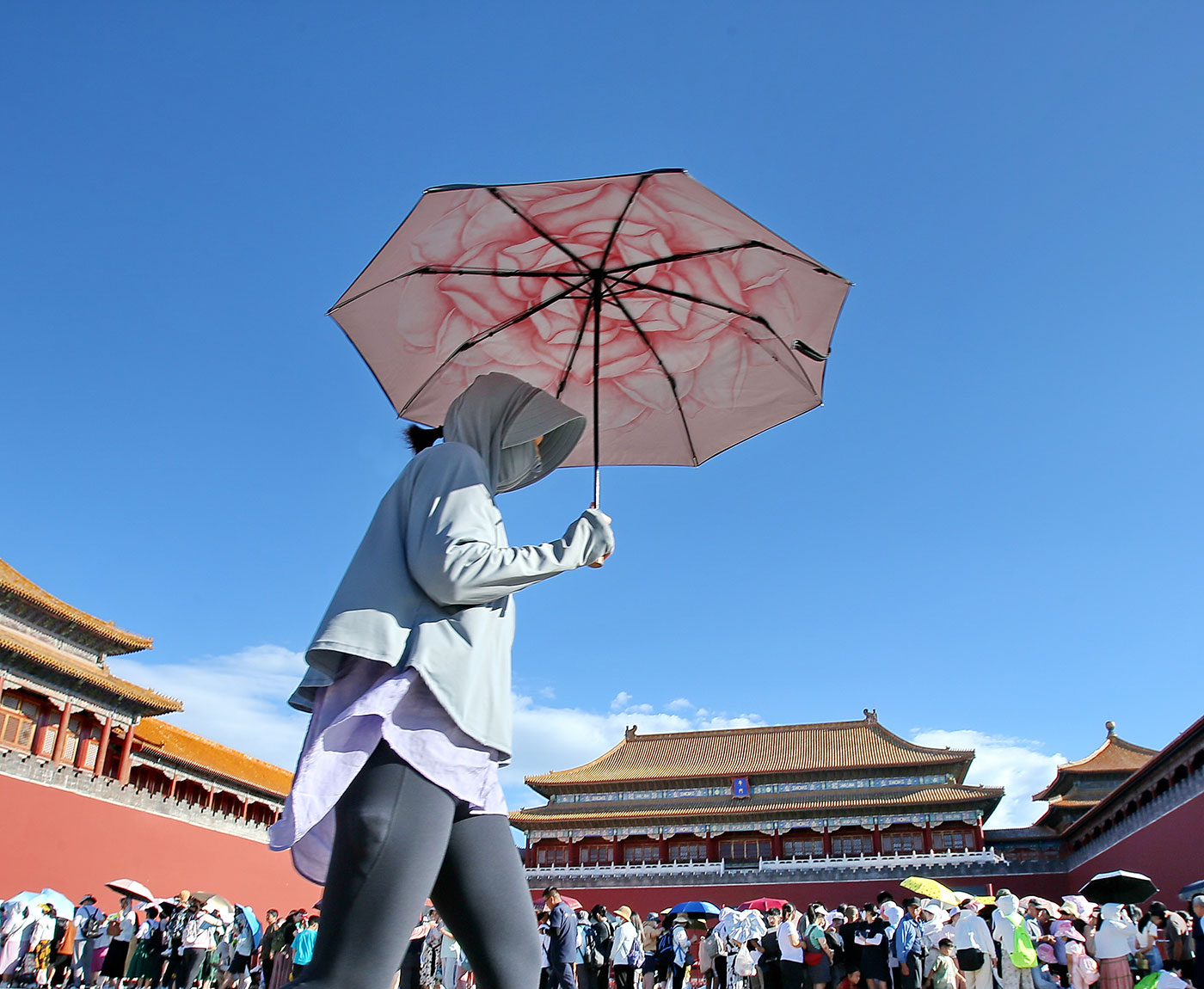
And hot weather has caused chaos across southern Europe and north Africa with Greece suffering its worst July on record for wildfires. The country is “at war”, Prime Minister Kyriakos Mitsotakis says.
Olive groves, beaches, holiday resorts and homes burned as the heatwave created tinder-dry conditions for the fires to take hold. About 86,500 acres of land has been destroyed, according to the WWF charity.
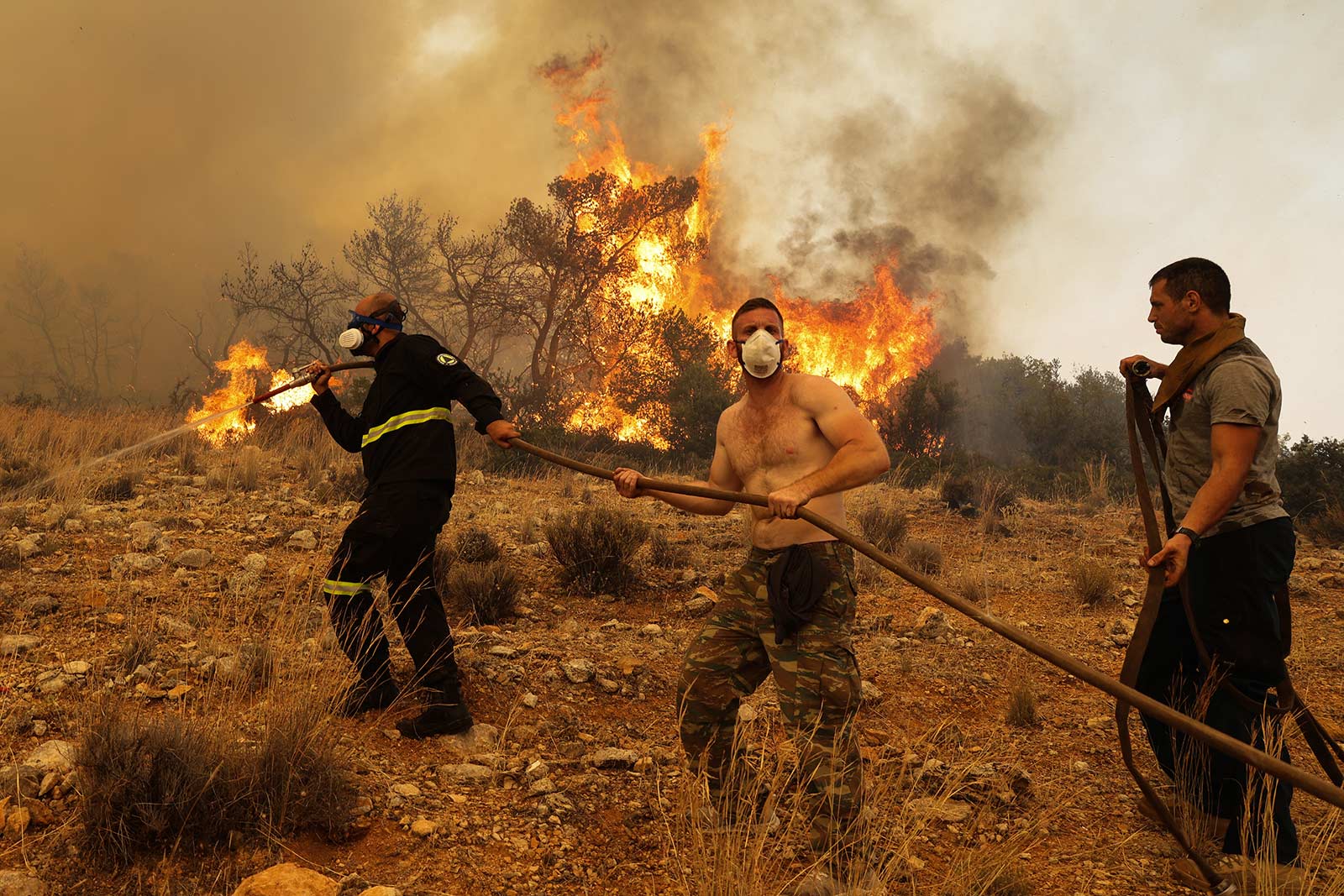
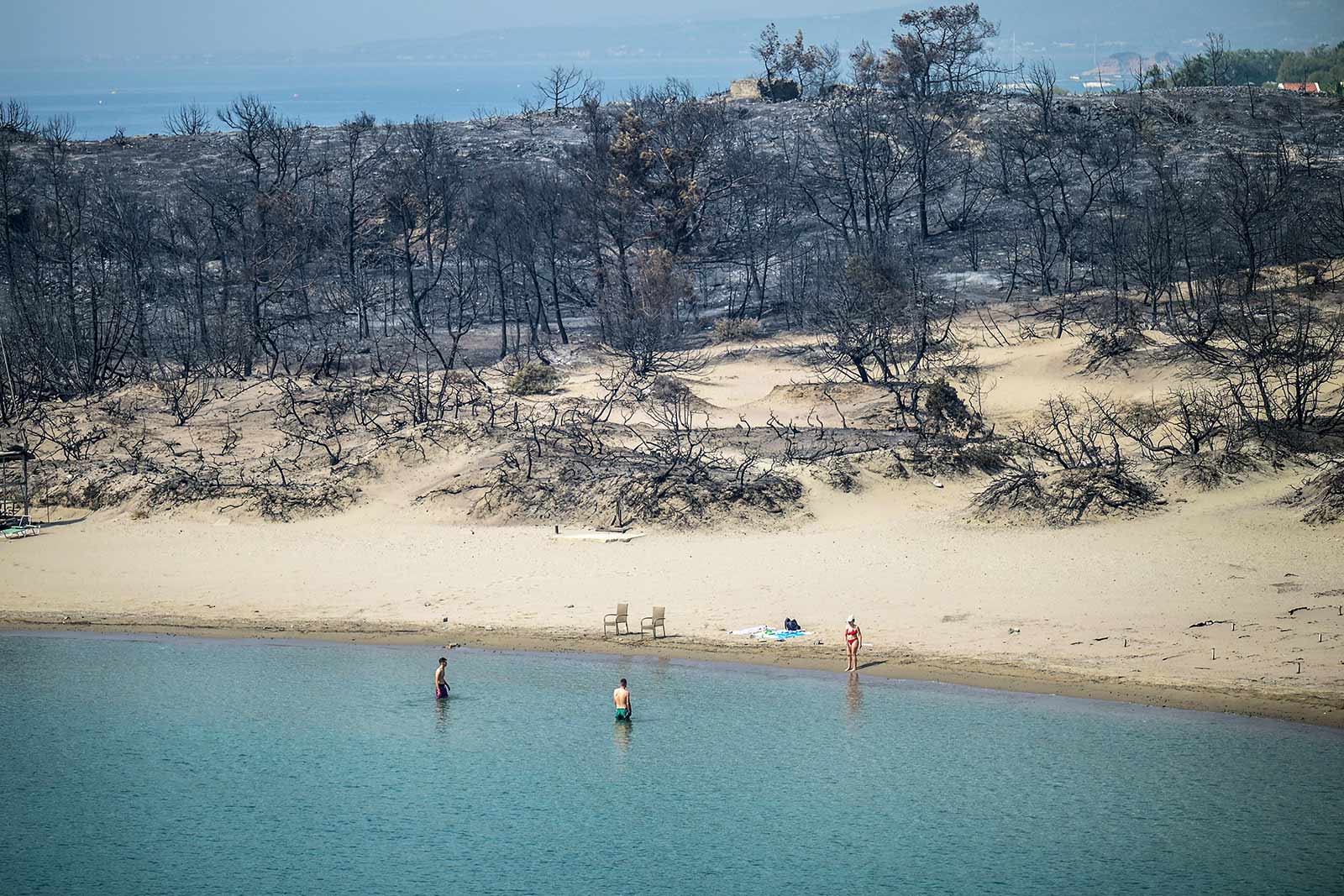
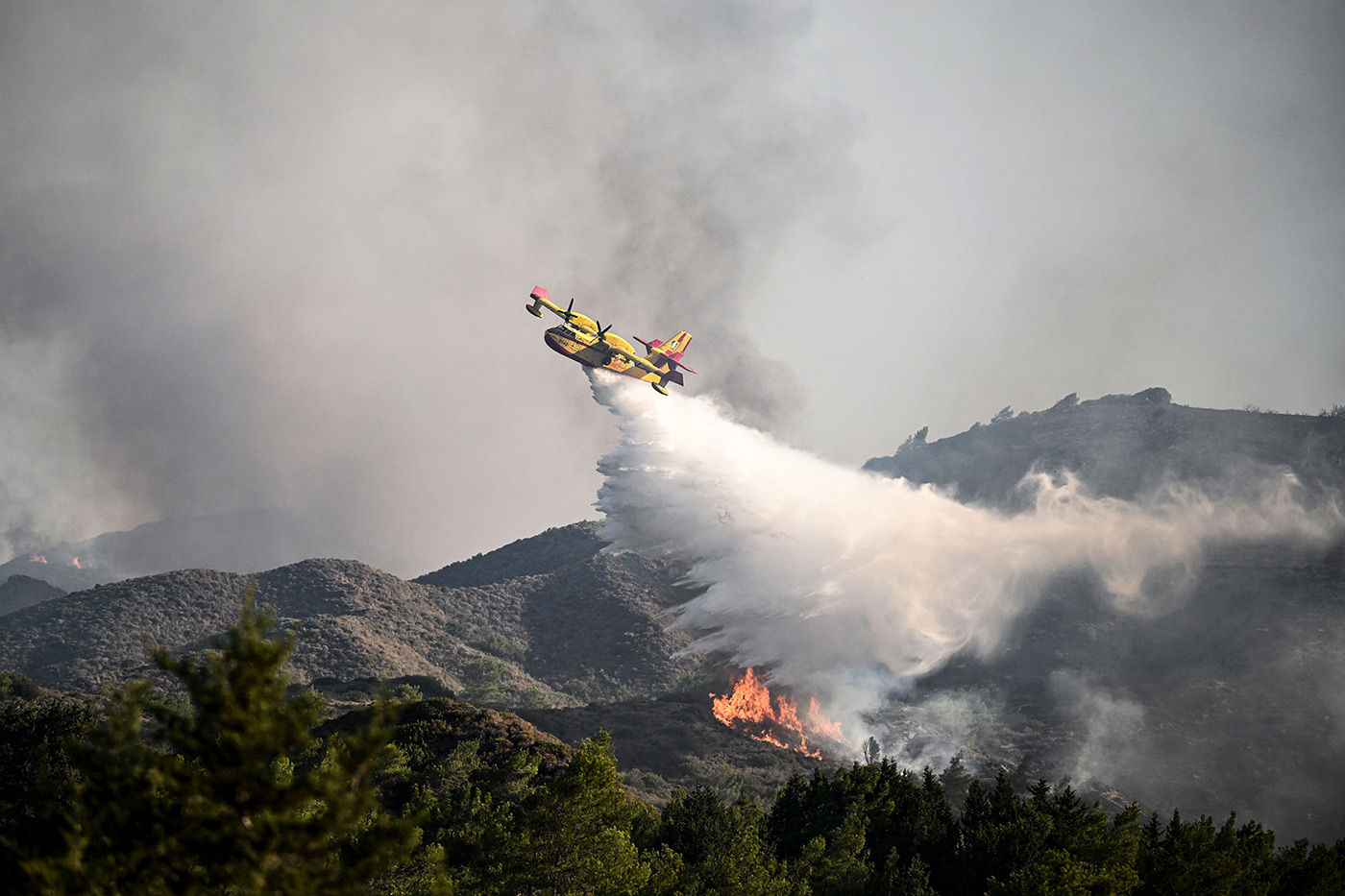
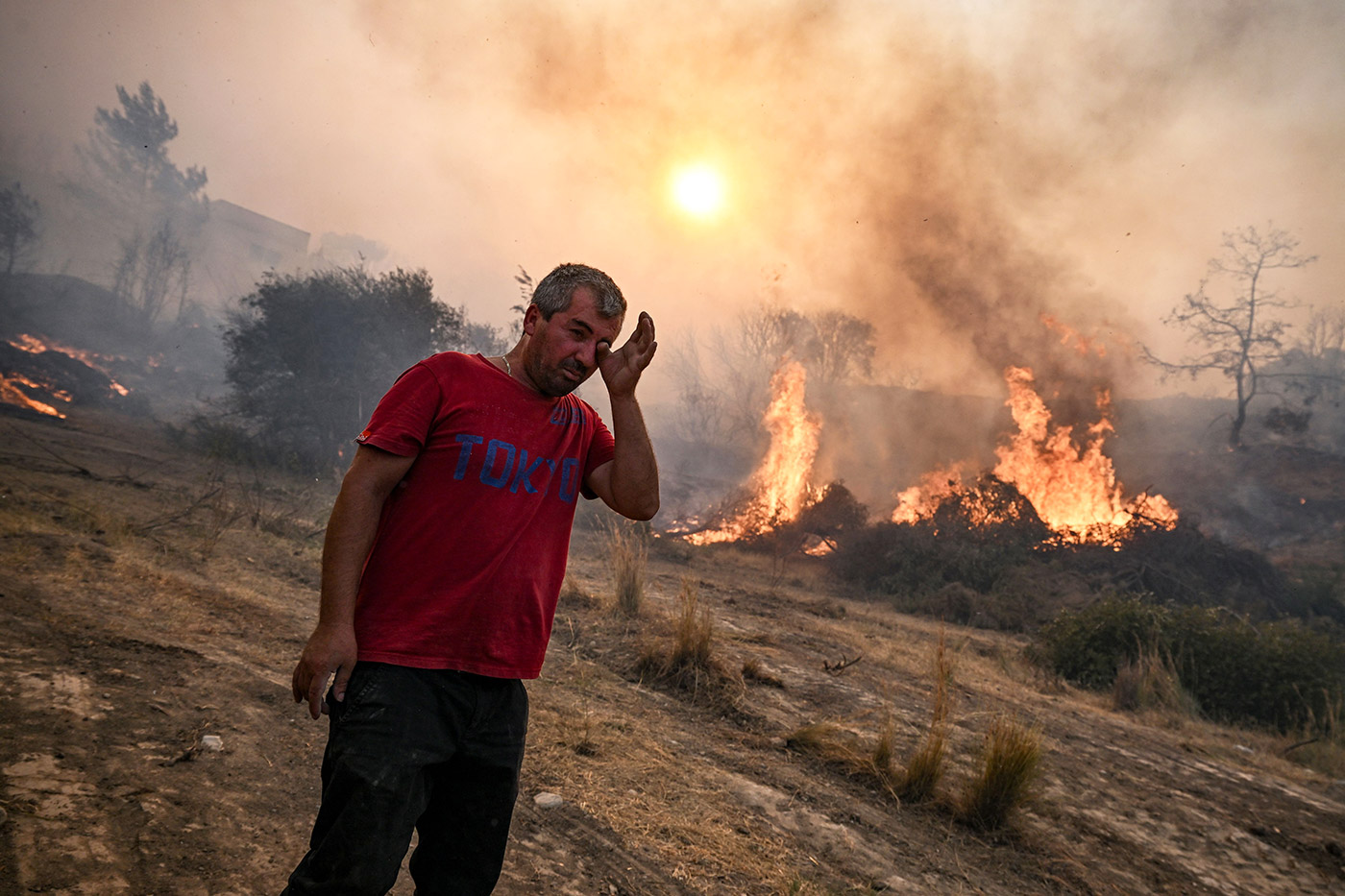
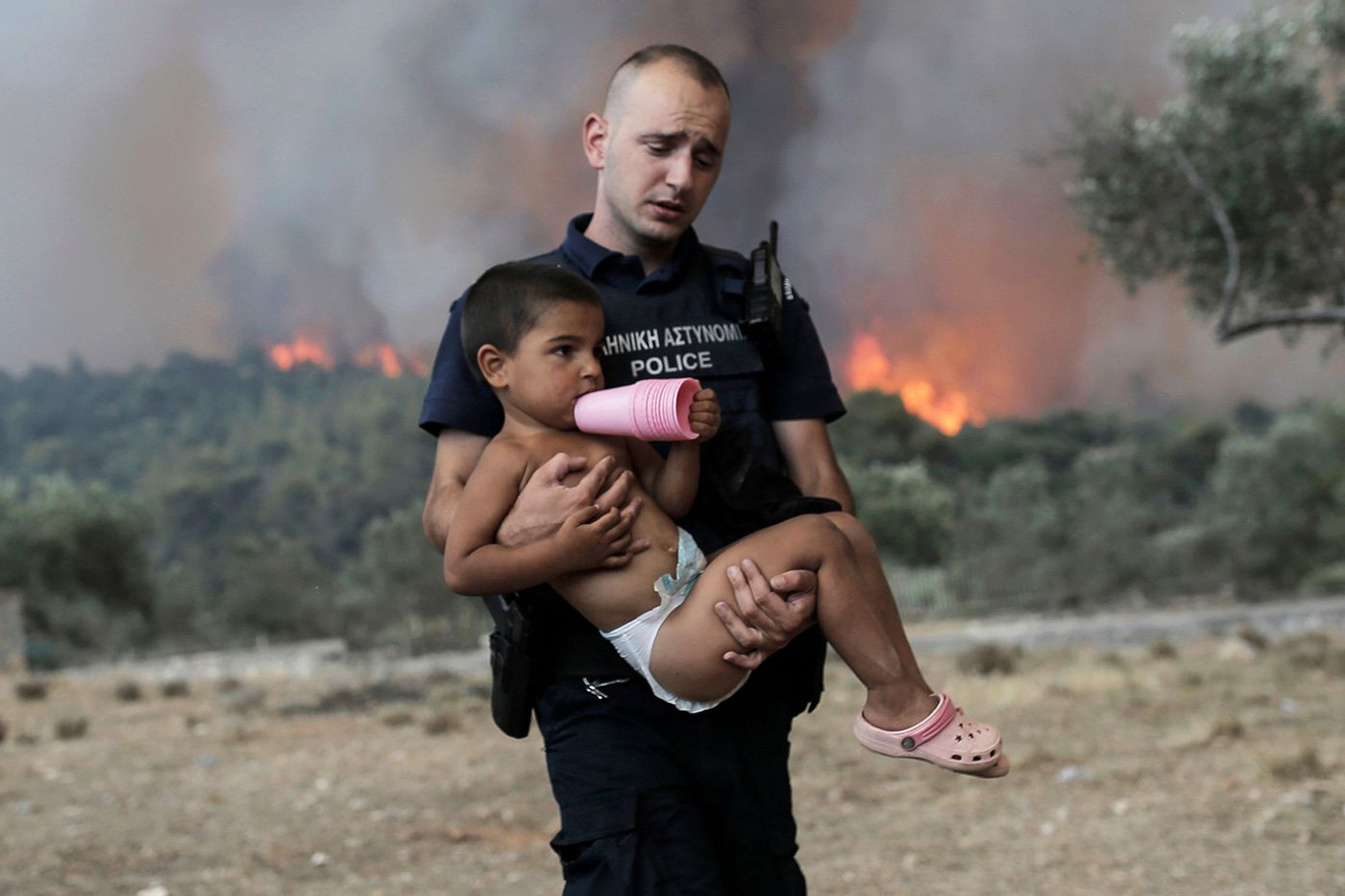
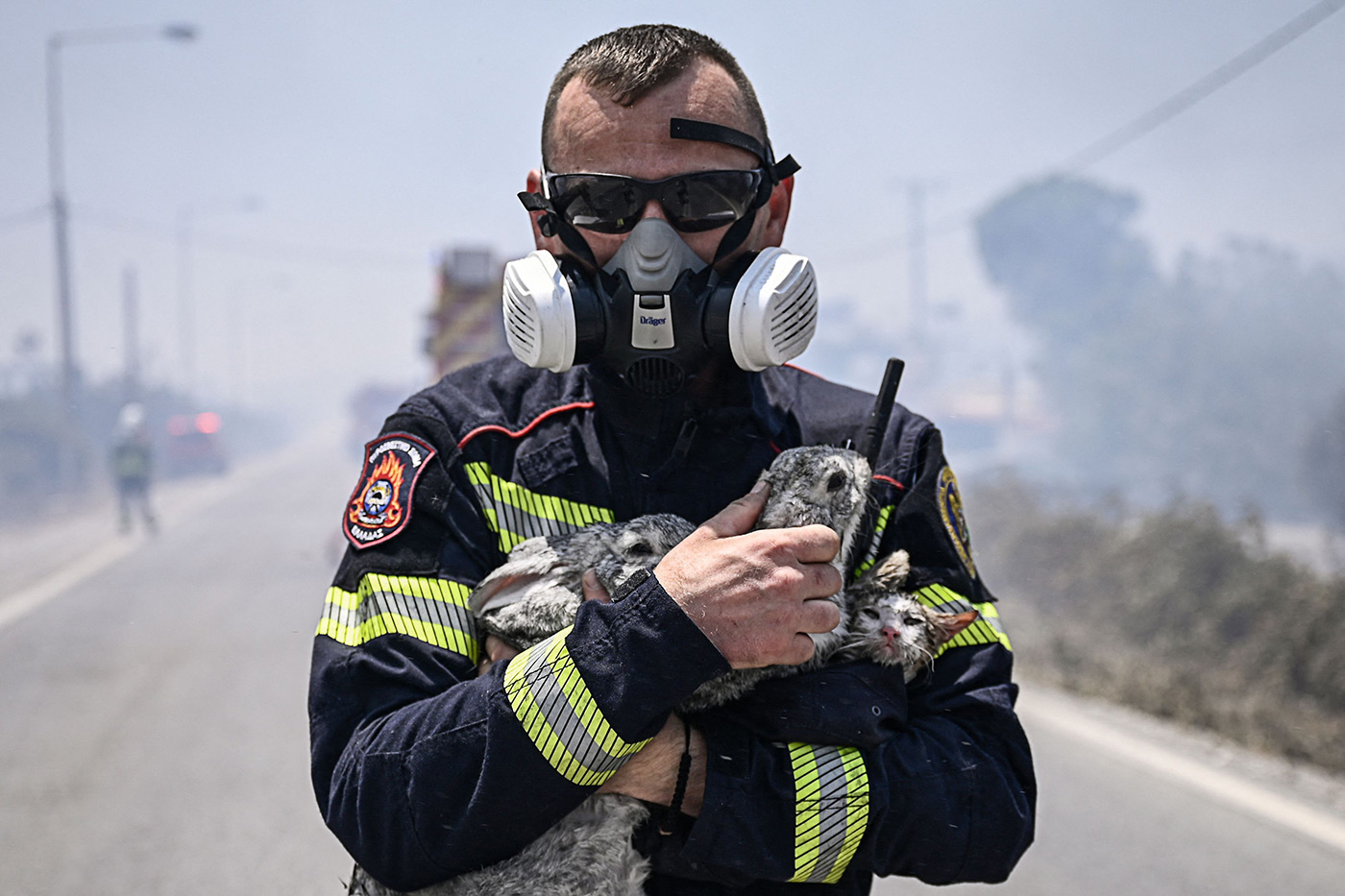
Two powerful heatwaves have hit Italy back-to-back. The government advised everyone, not just the elderly or more vulnerable, to stay indoors for much of the day and many cities were forced to provide extra relief to tourists struggling in the heat.
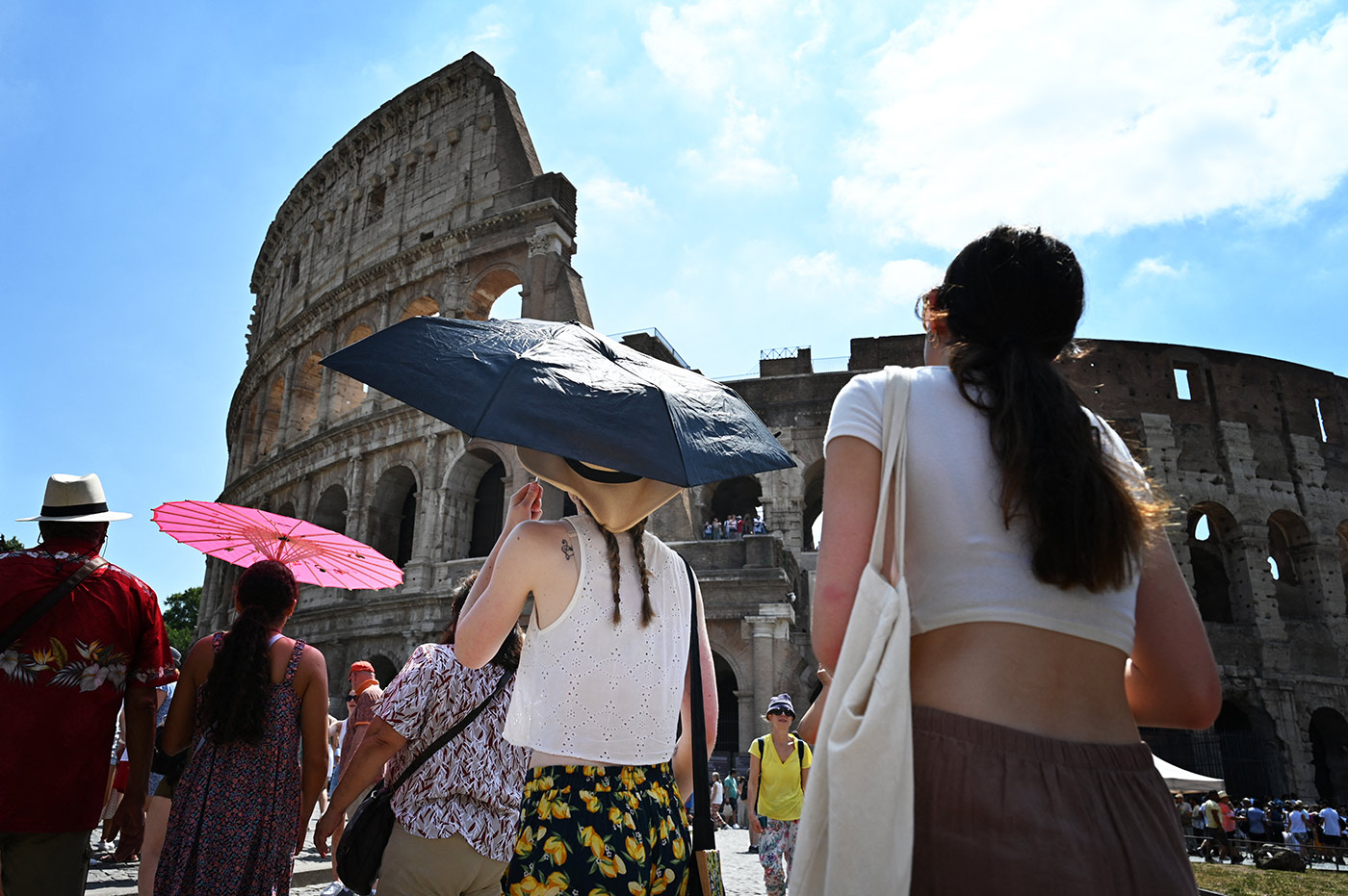
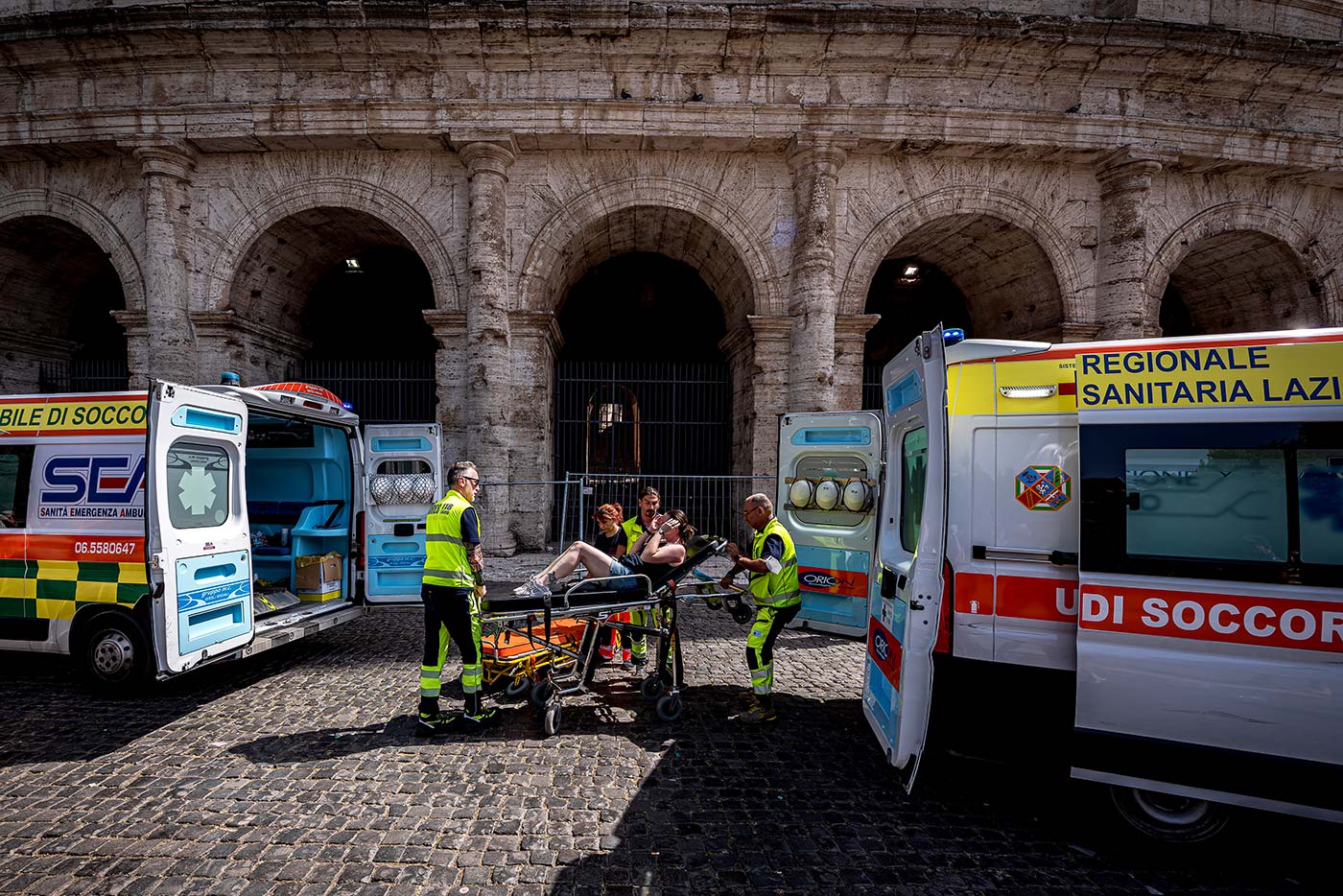
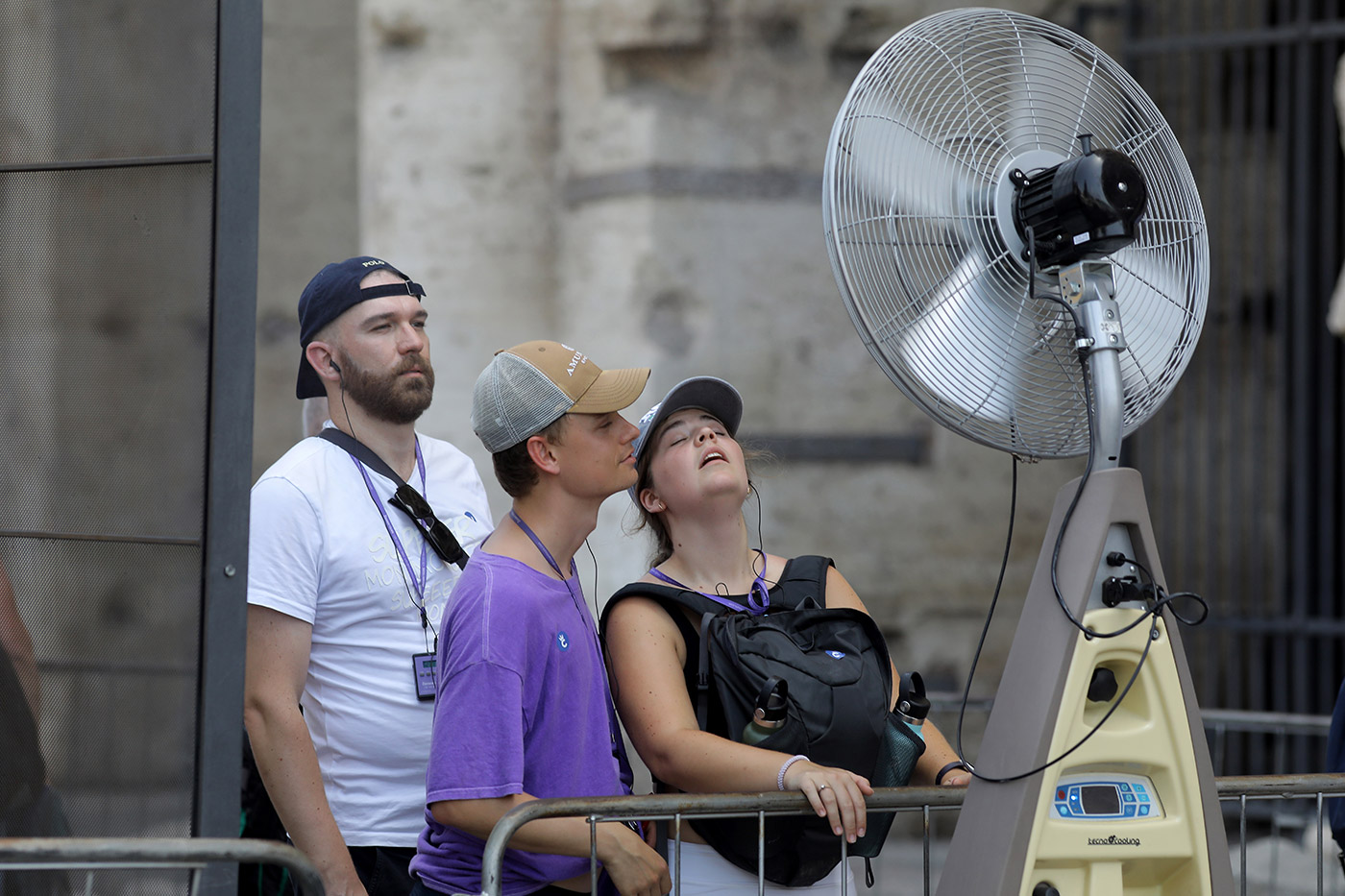
And by the end of the month the dry conditions led to wildfires across Sicily, destroying a petrol station on one of the island’s main motorways and forcing the closure of Palermo airport.
A blaze also engulfed the ancient temple of Segesta, but authorities eventually managed to put it out.
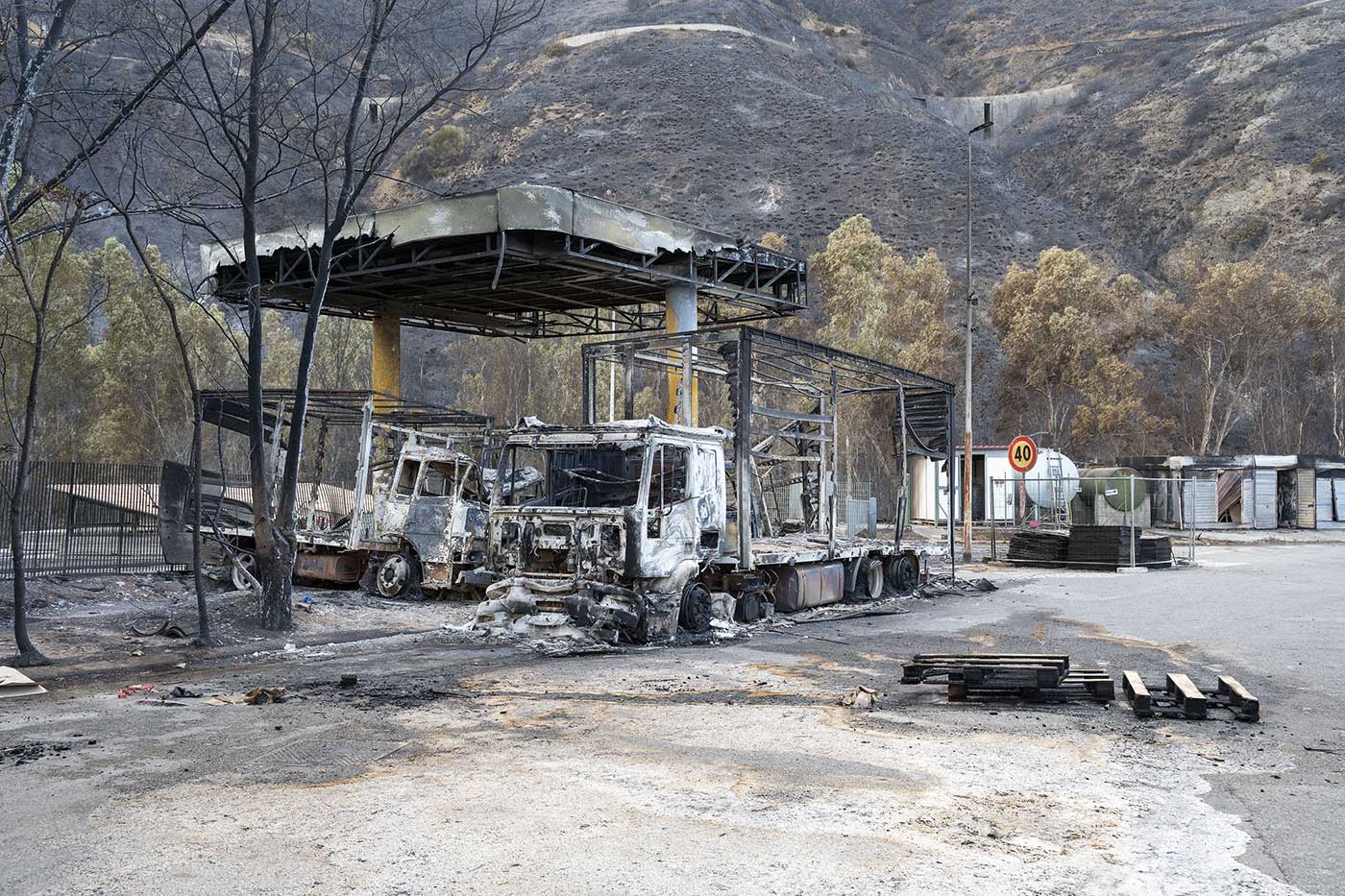
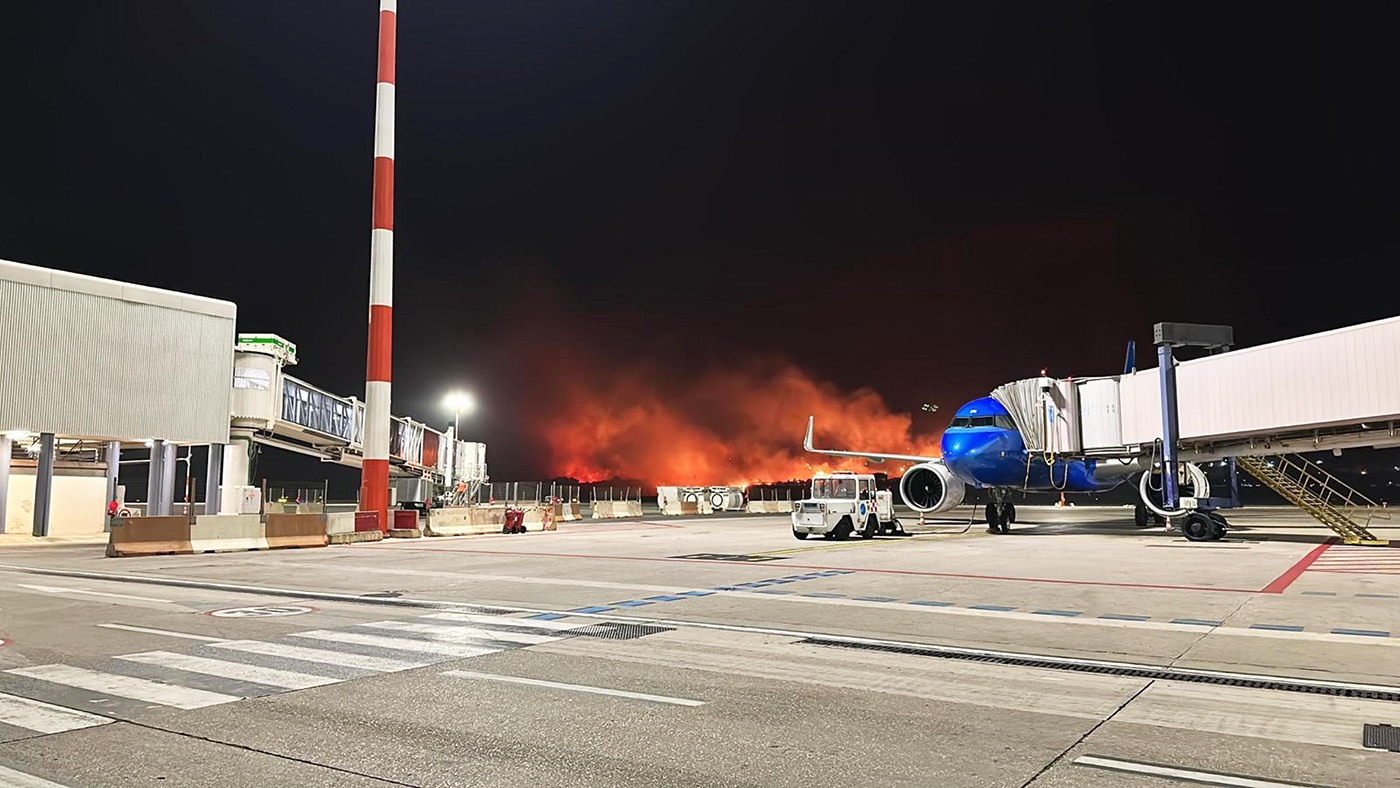
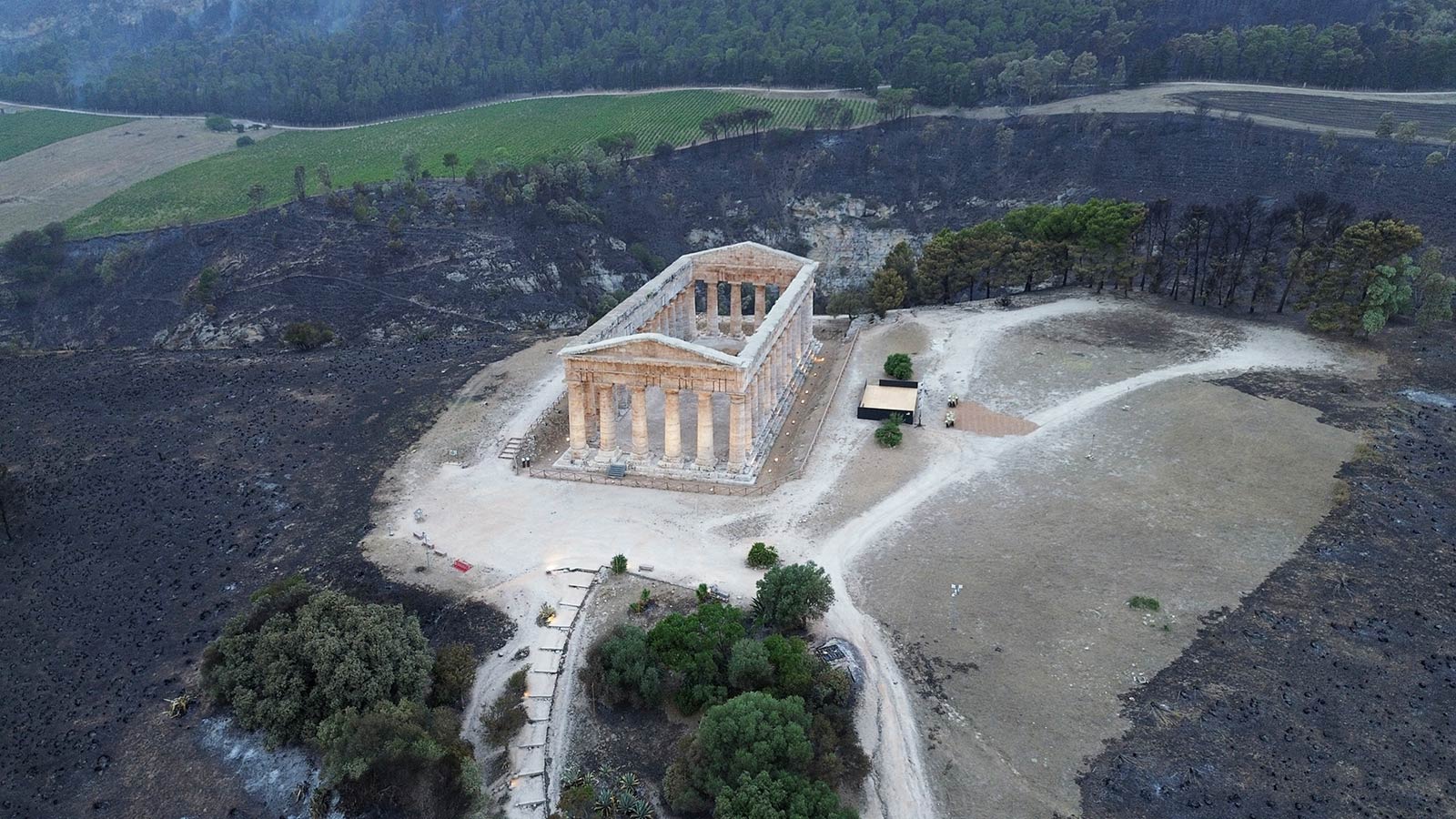
Thousands were also evacuated from homes in the Canary Islands as wildfires spread on the island of La Palma earlier in the month.
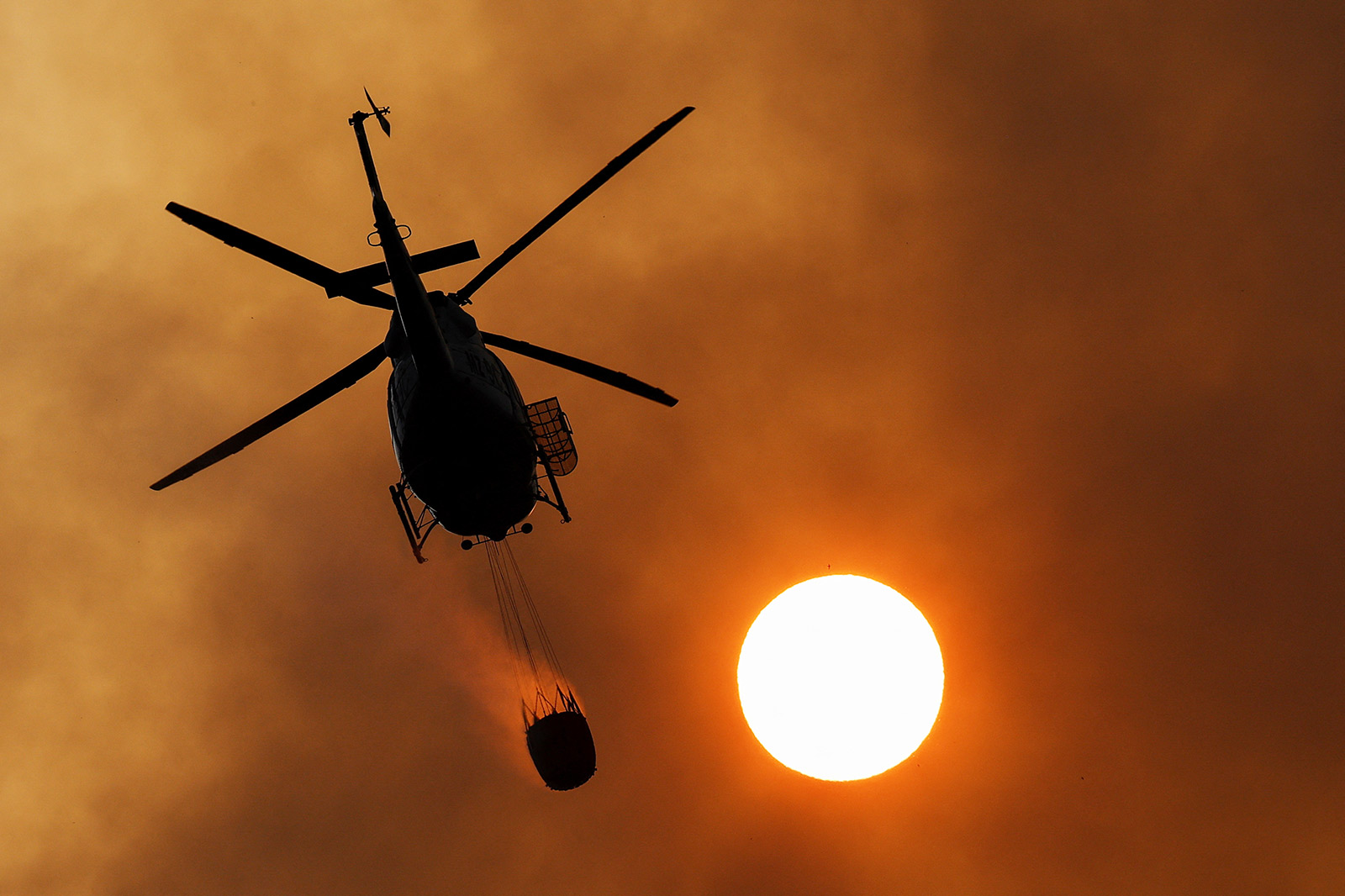
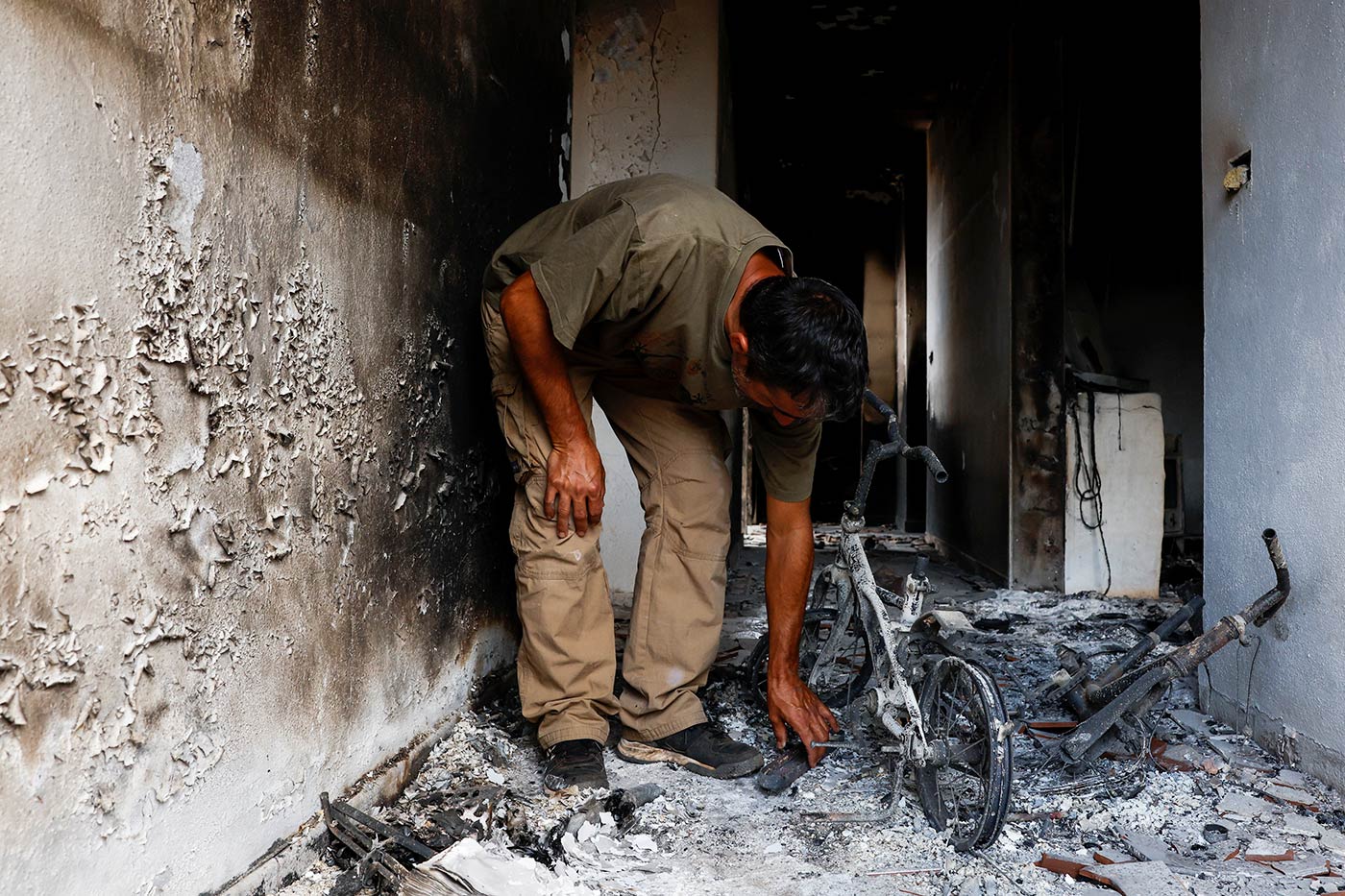
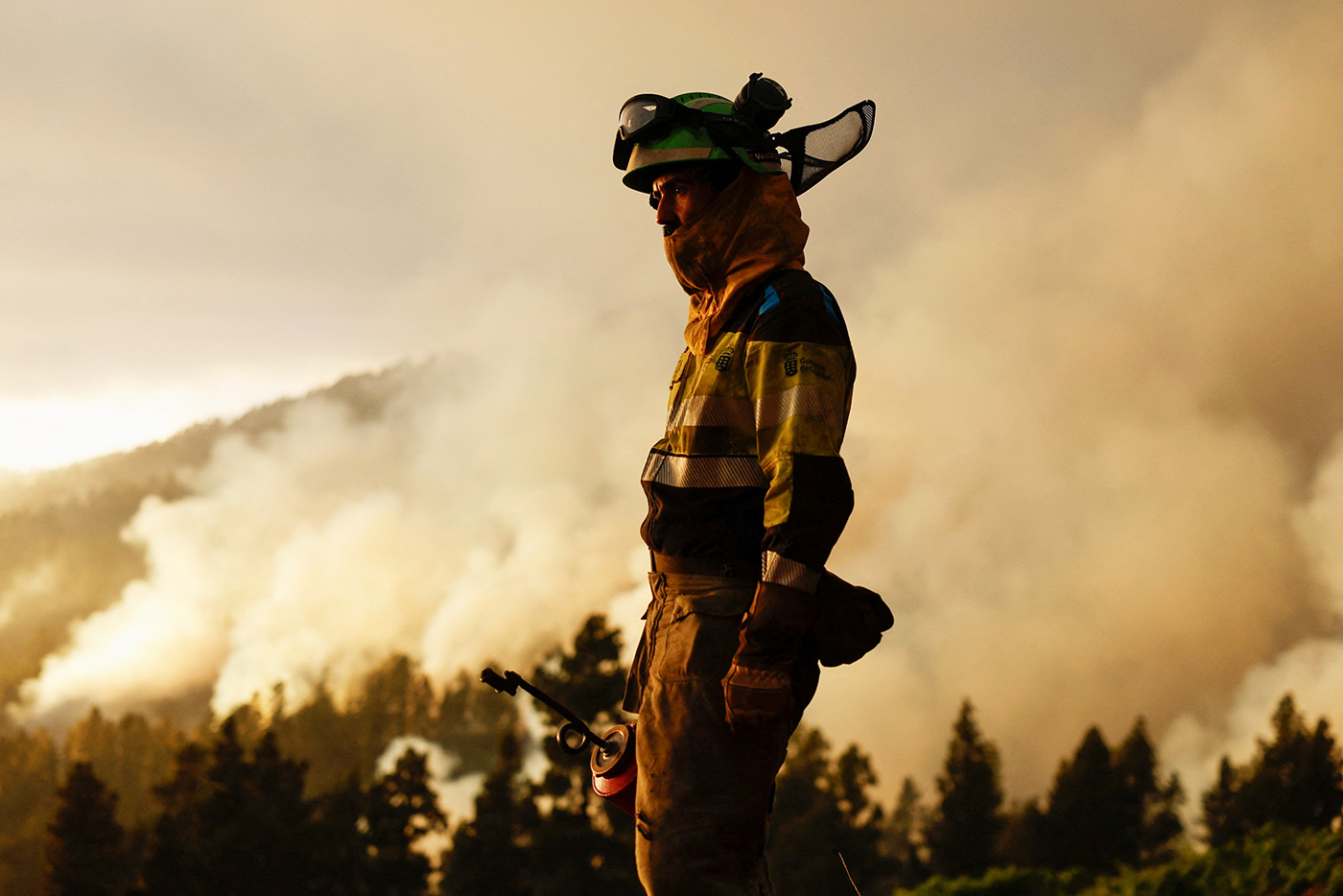
But the wildfires may have been most deadly in northern Africa. At least 34 people have been killed in Algeria, including 10 soldiers who were battling the blazes spreading across the country, while hundreds have been forced to flee their homes in neighbouring Tunisia.
Northern Africa has been experiencing a record heatwave with temperatures in several regions up to 7C higher than normal for the time of year - reaching 48C in Algeria.
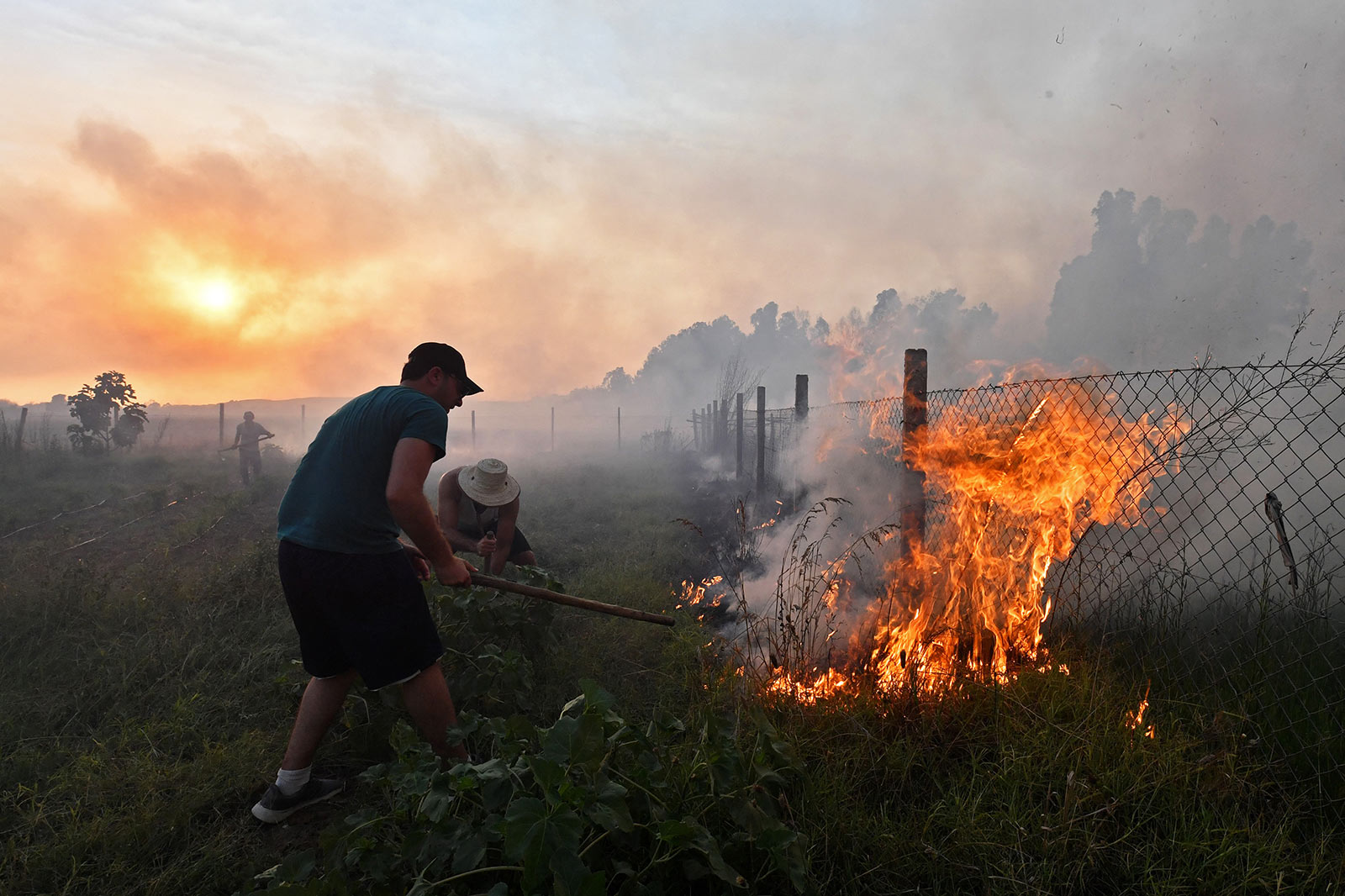
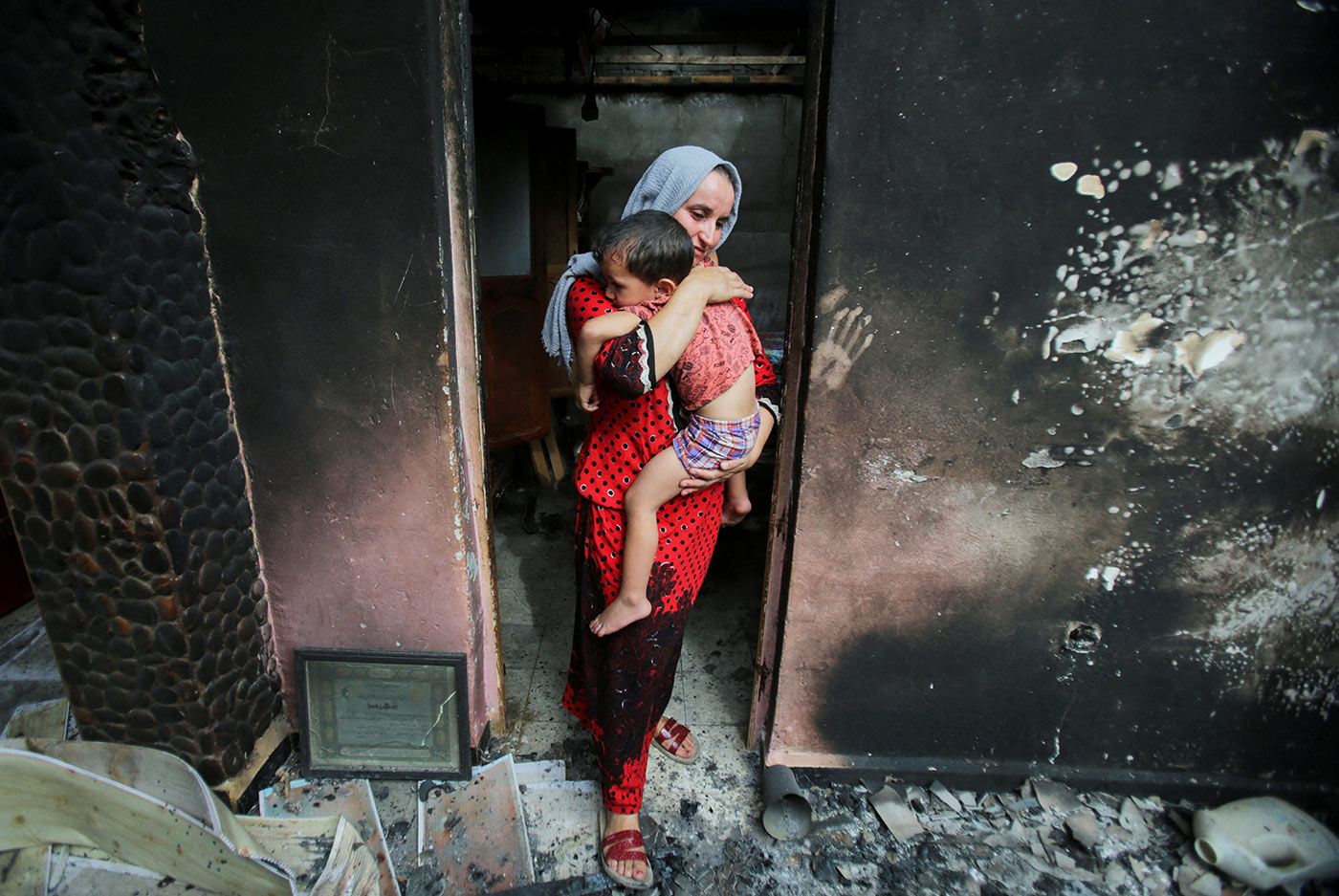
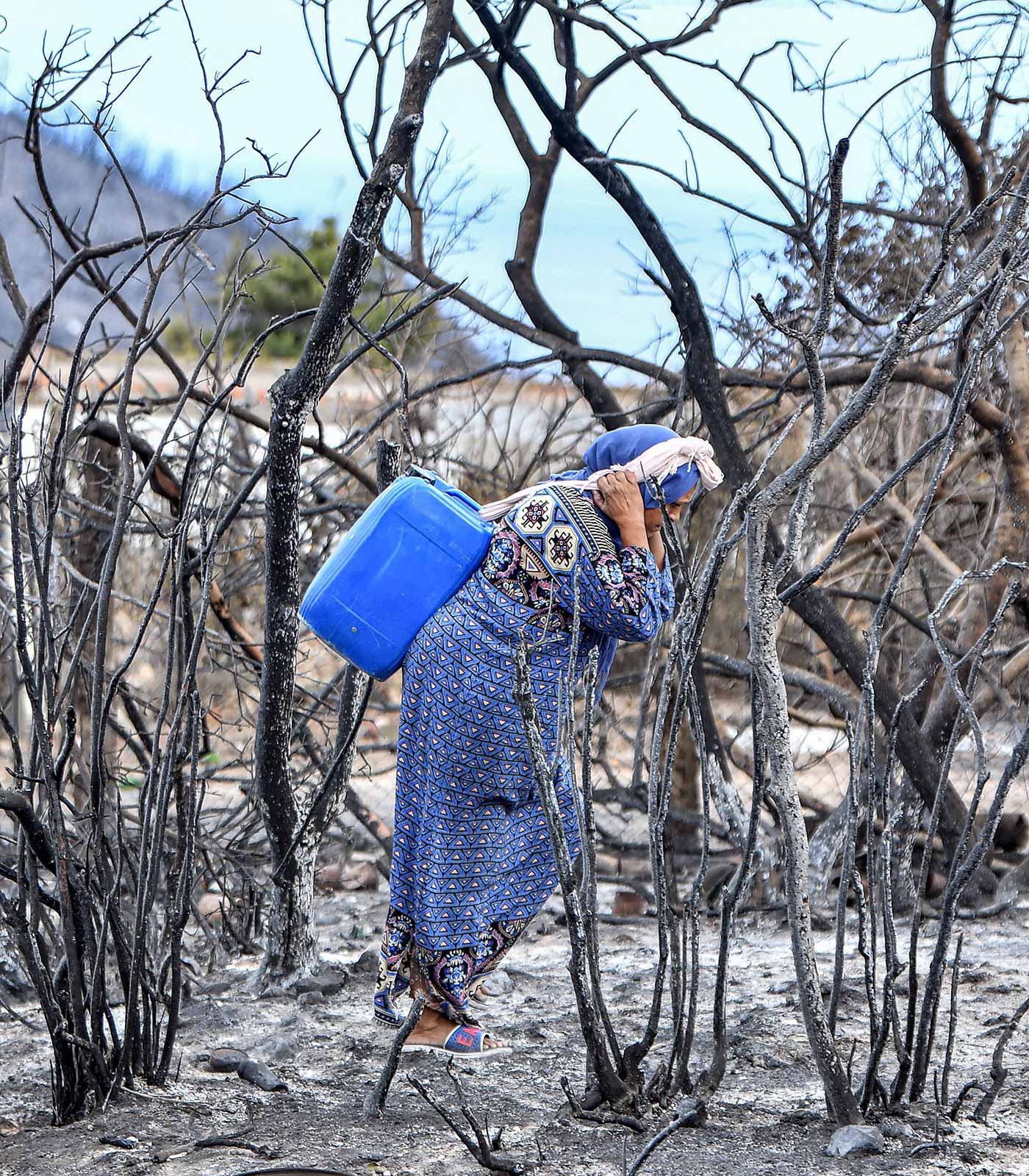
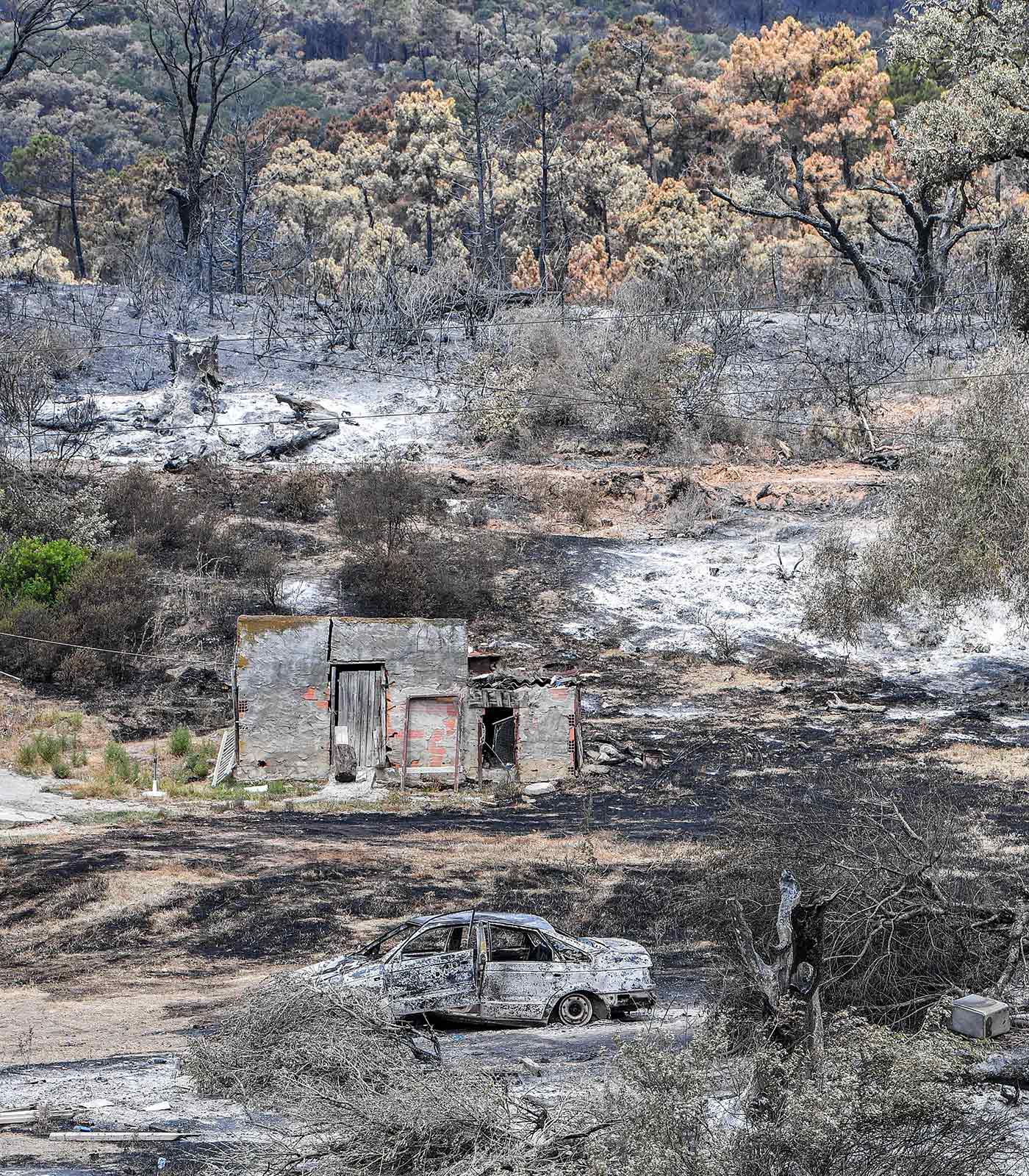
Further east, Syria is also suffering from the intense heat and wildfires - with medical groups particularly concerned about the conditions for nearly two million people living in internal displacement camps in the war-ravaged country.
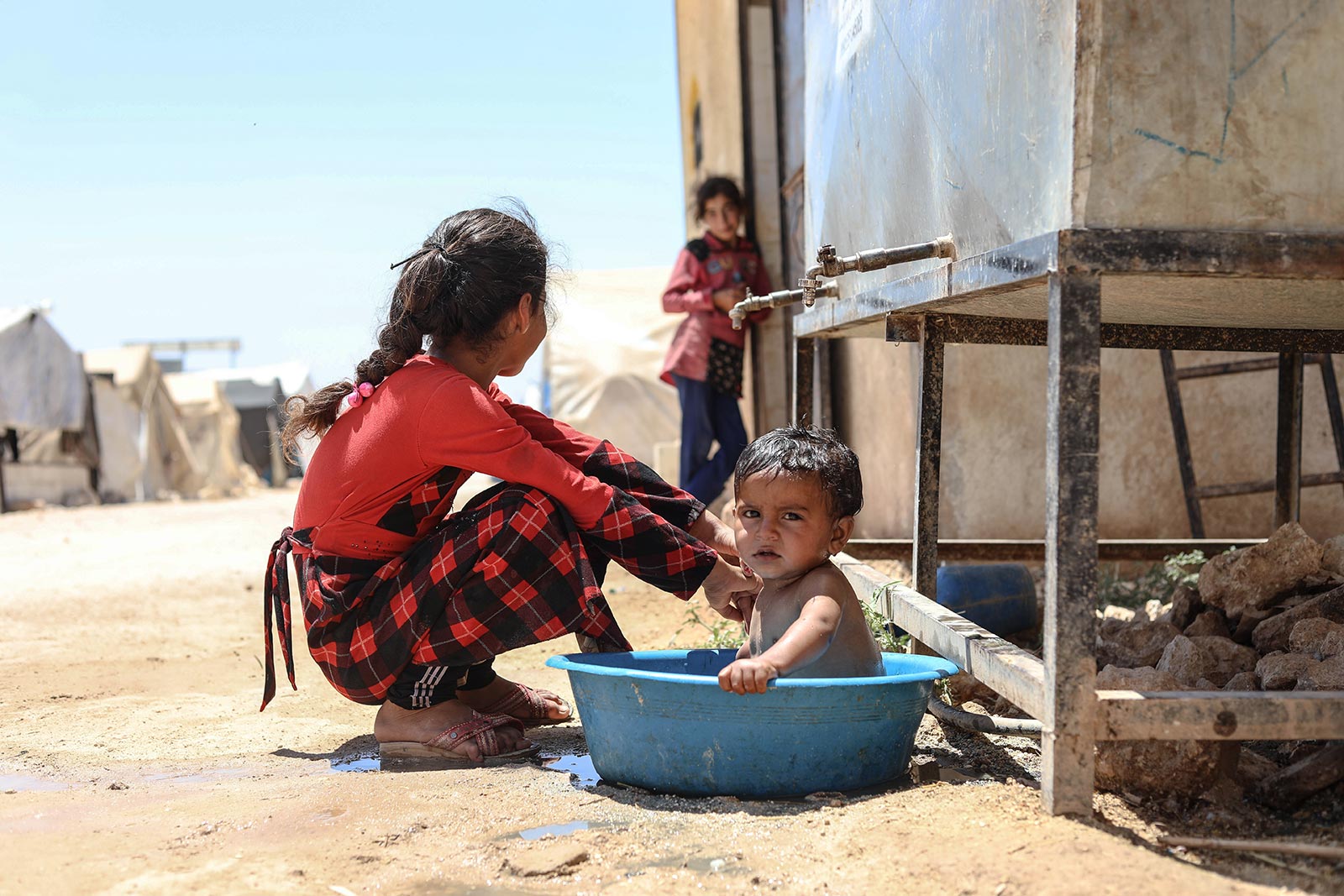
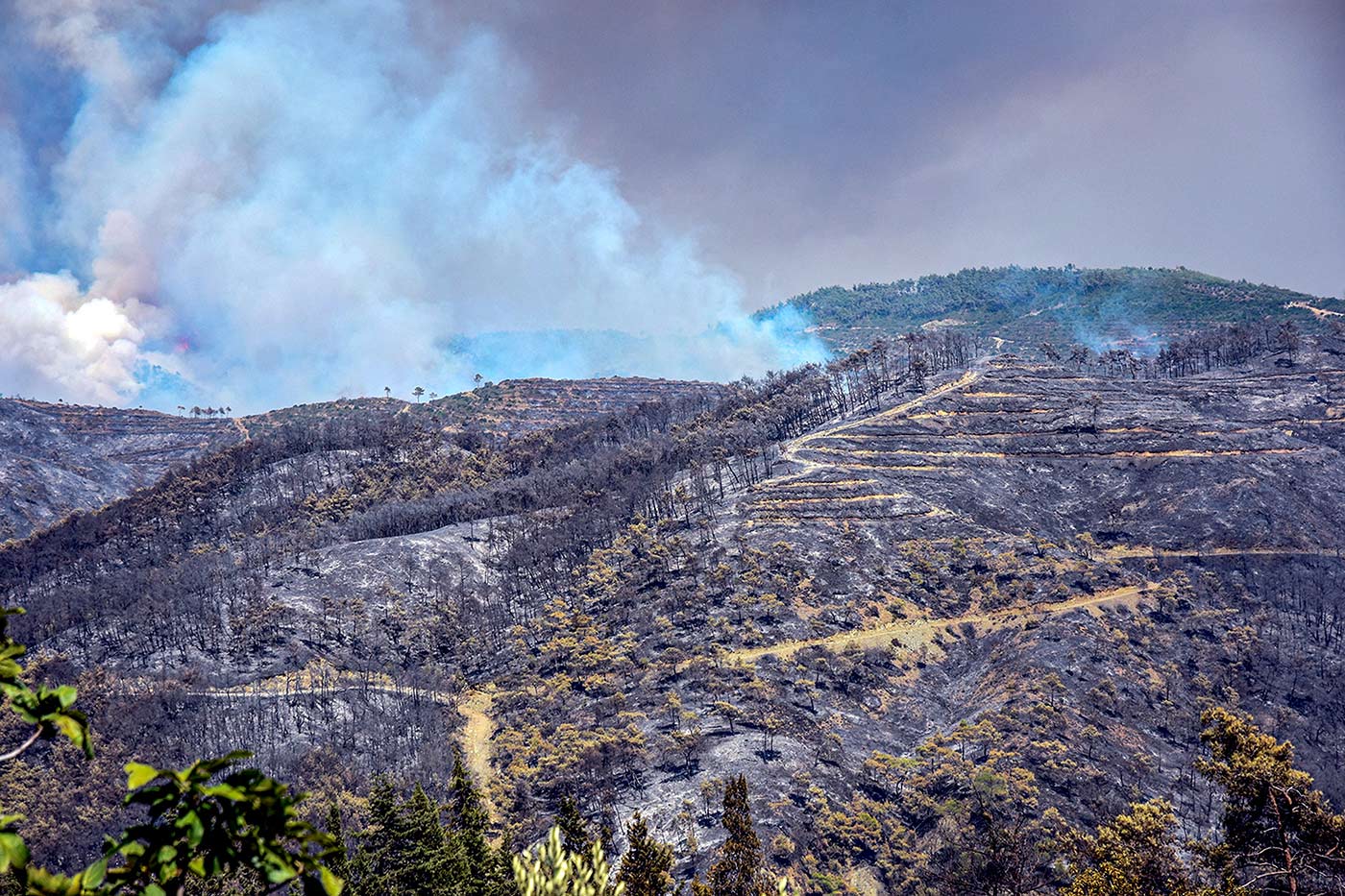
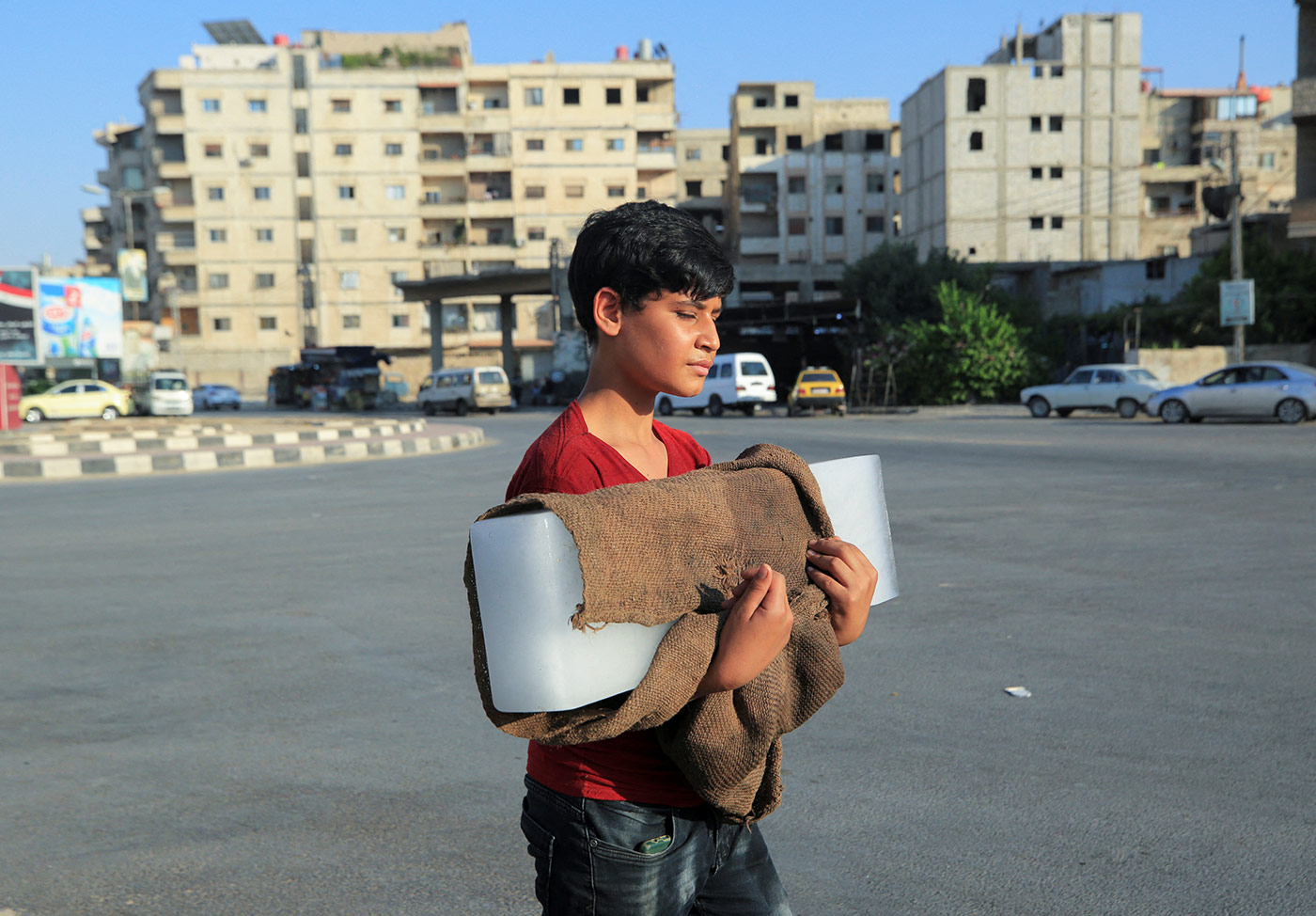
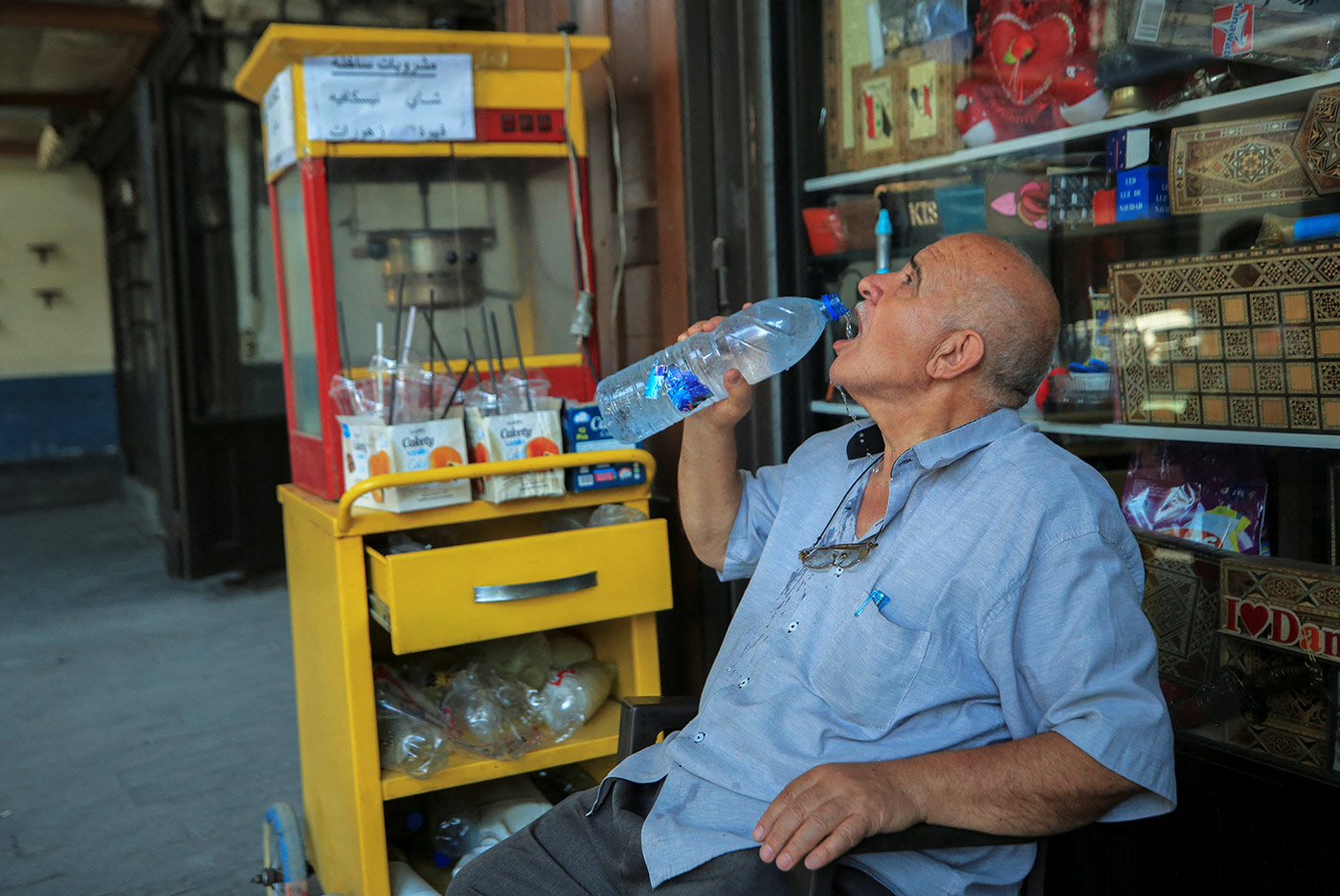
Of course, weather extremes have always happened but the recent series of broken records and dramatic events has surprised scientists.
July is "virtually certain" to be the world's warmest month on record, say scientists, and UN chief Antonio Gueterres has warned the world has now entered an era of “global boiling”.
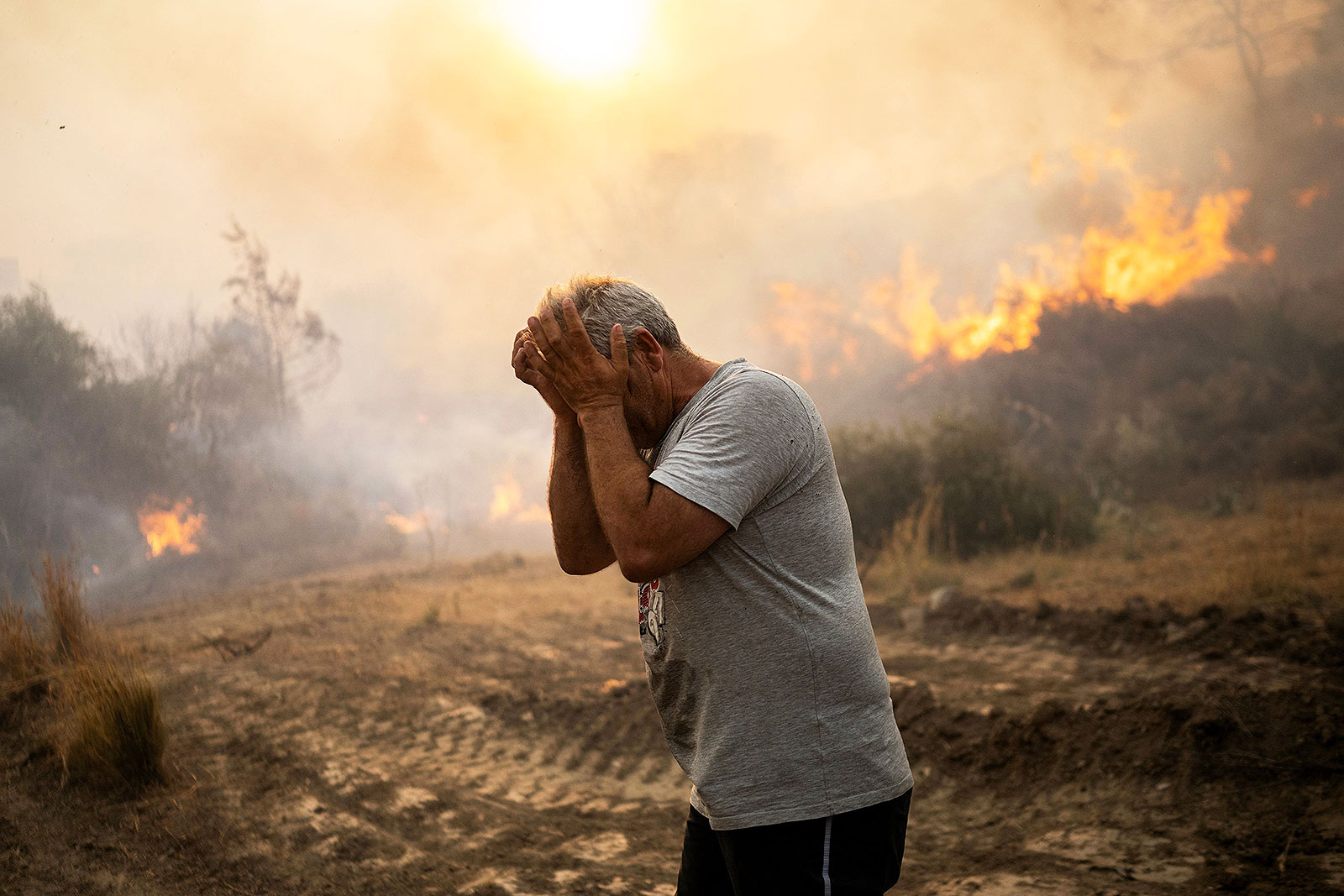
 Earth in uncharted territory as climate records tumble
Earth in uncharted territory as climate records tumble
 Will the Gulf Stream really collapse by 2025?
Will the Gulf Stream really collapse by 2025?
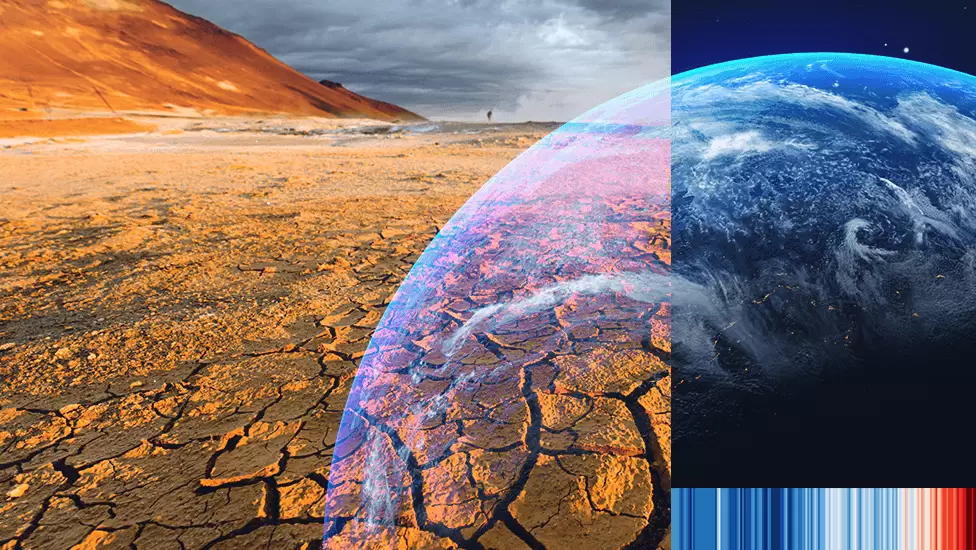 What is climate change? A really simple guide
What is climate change? A really simple guide